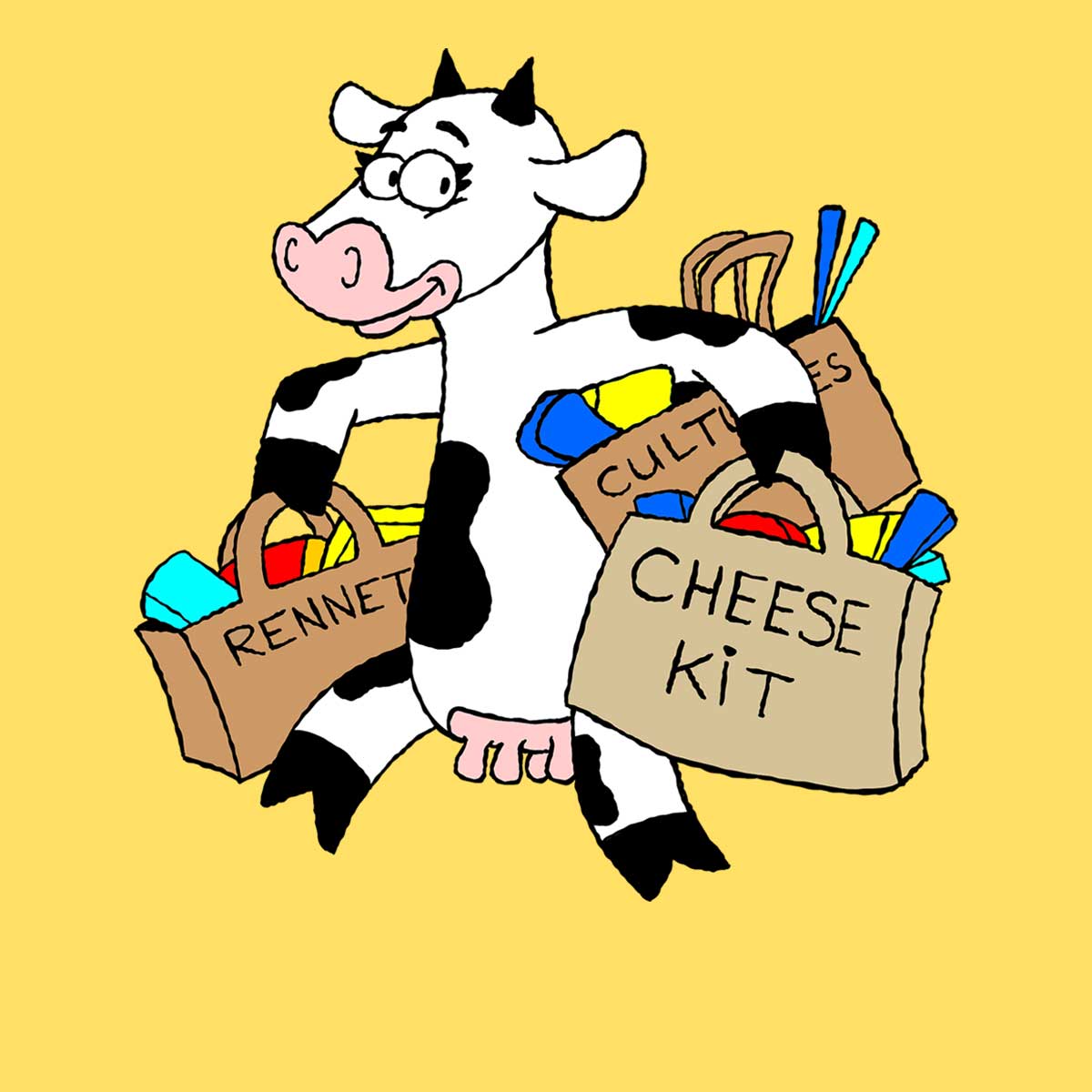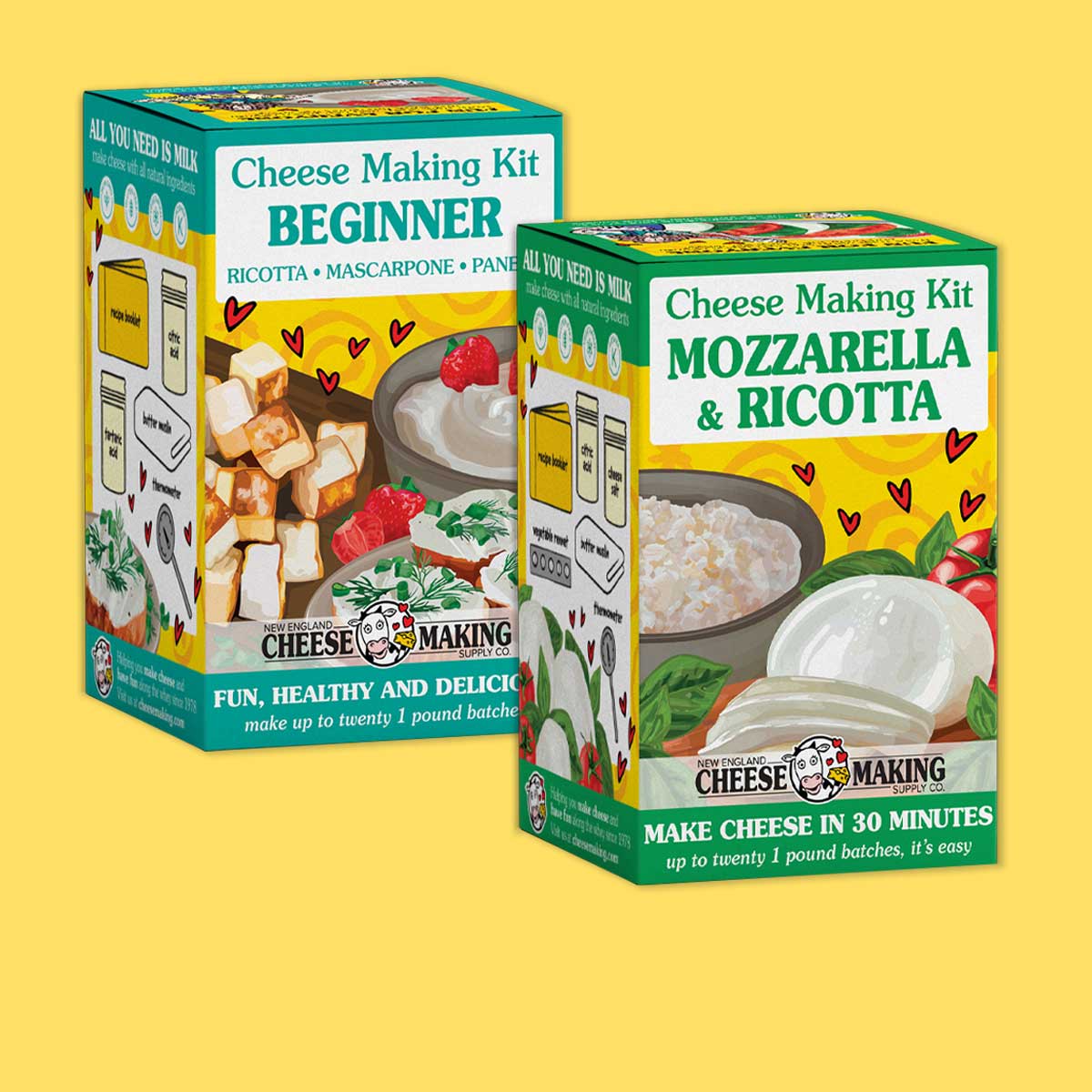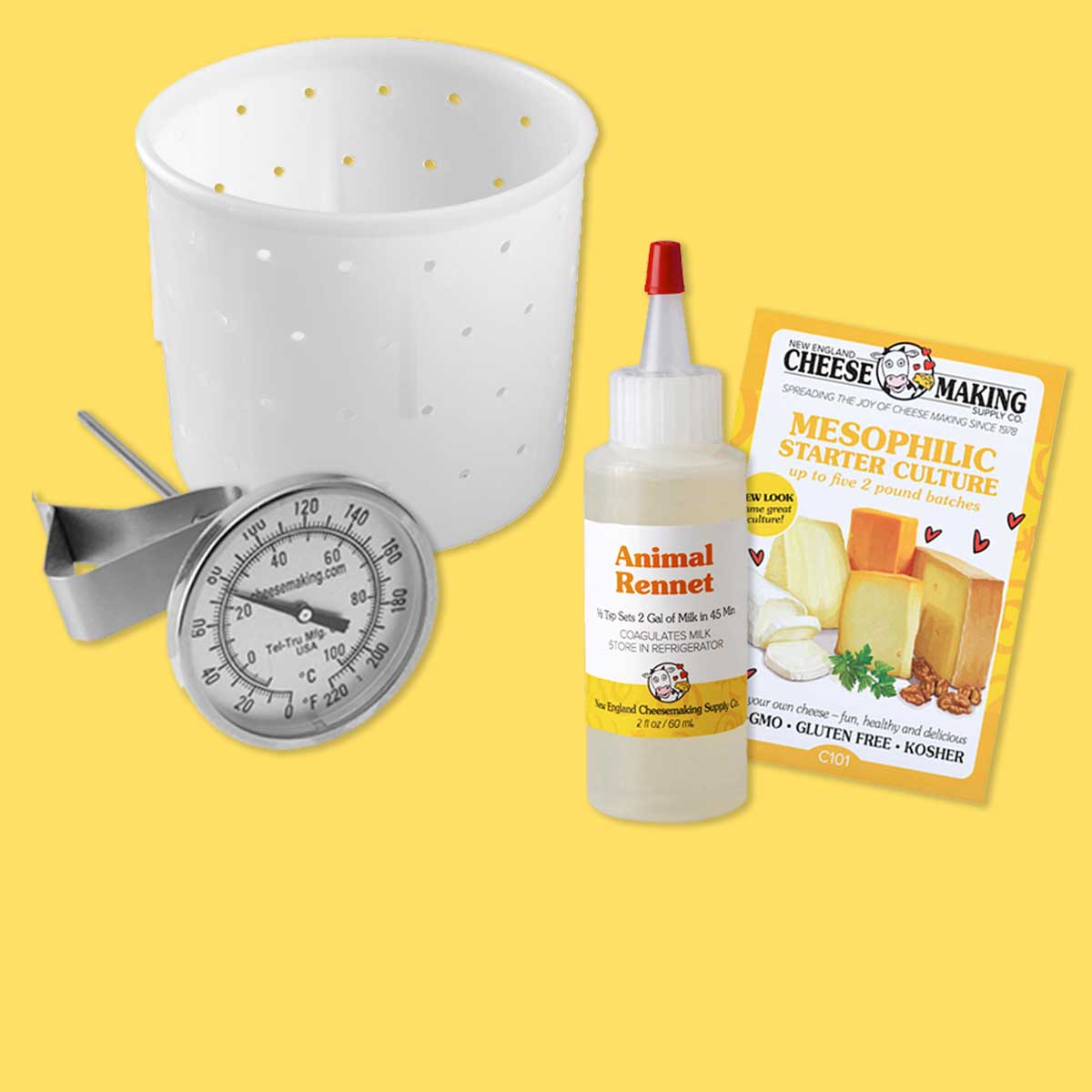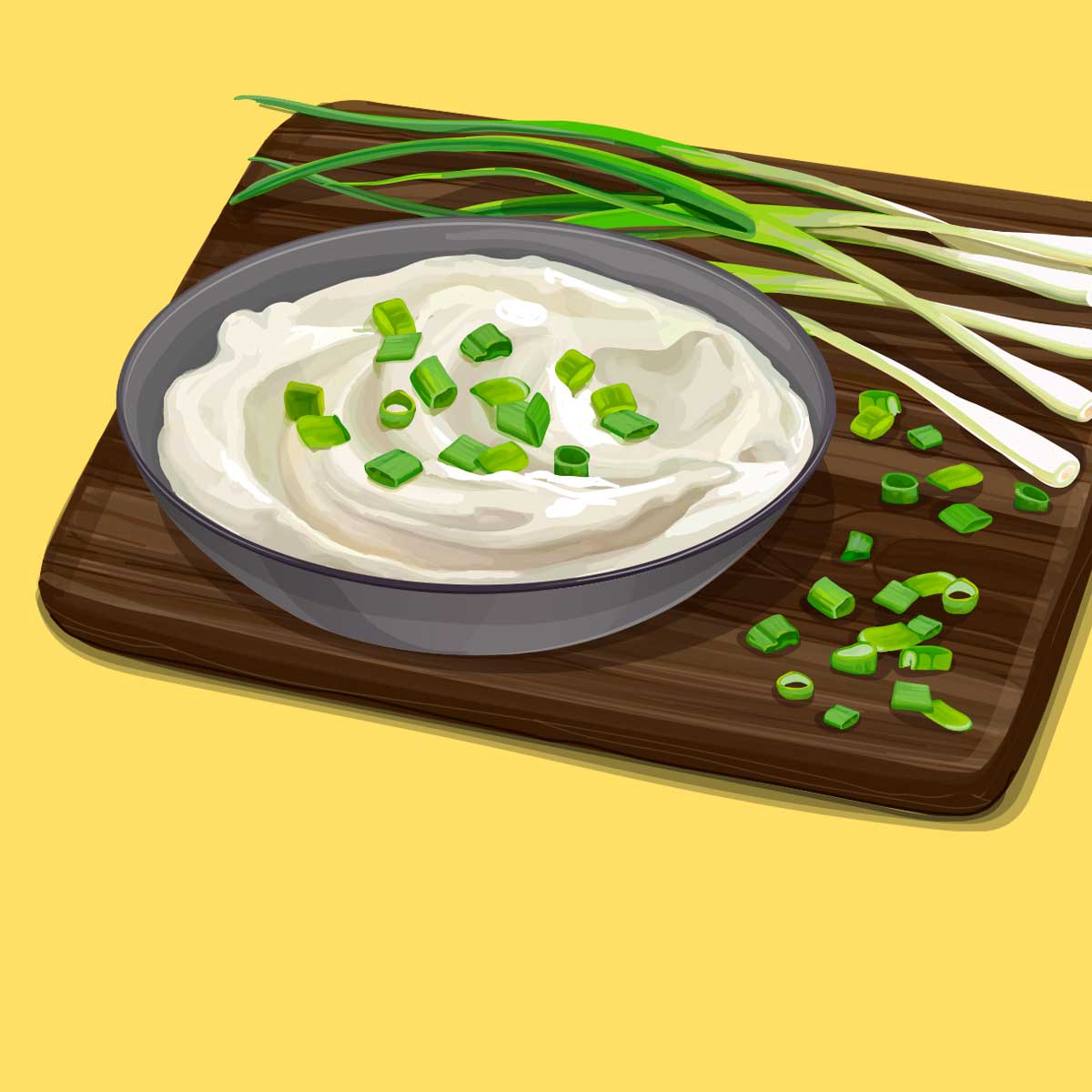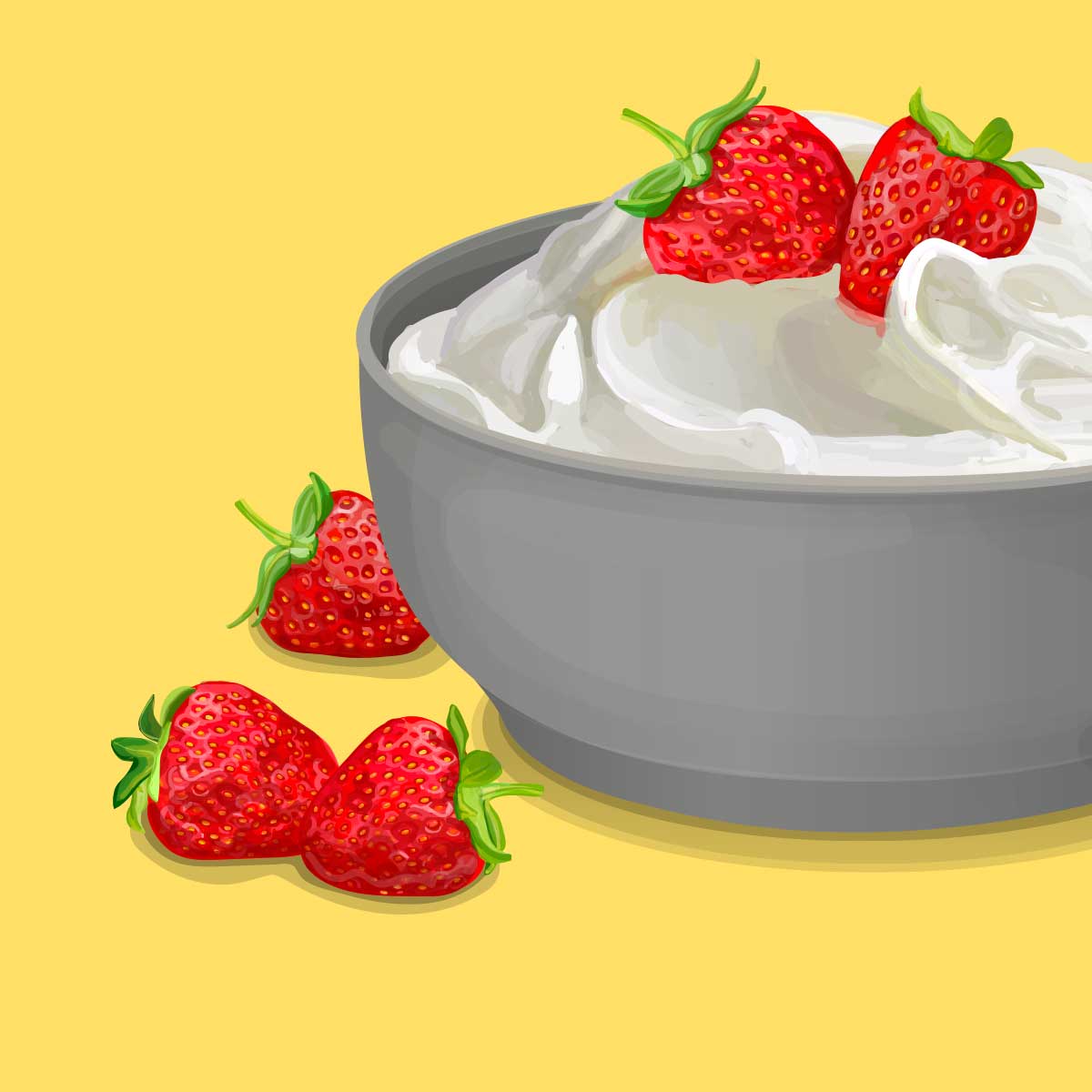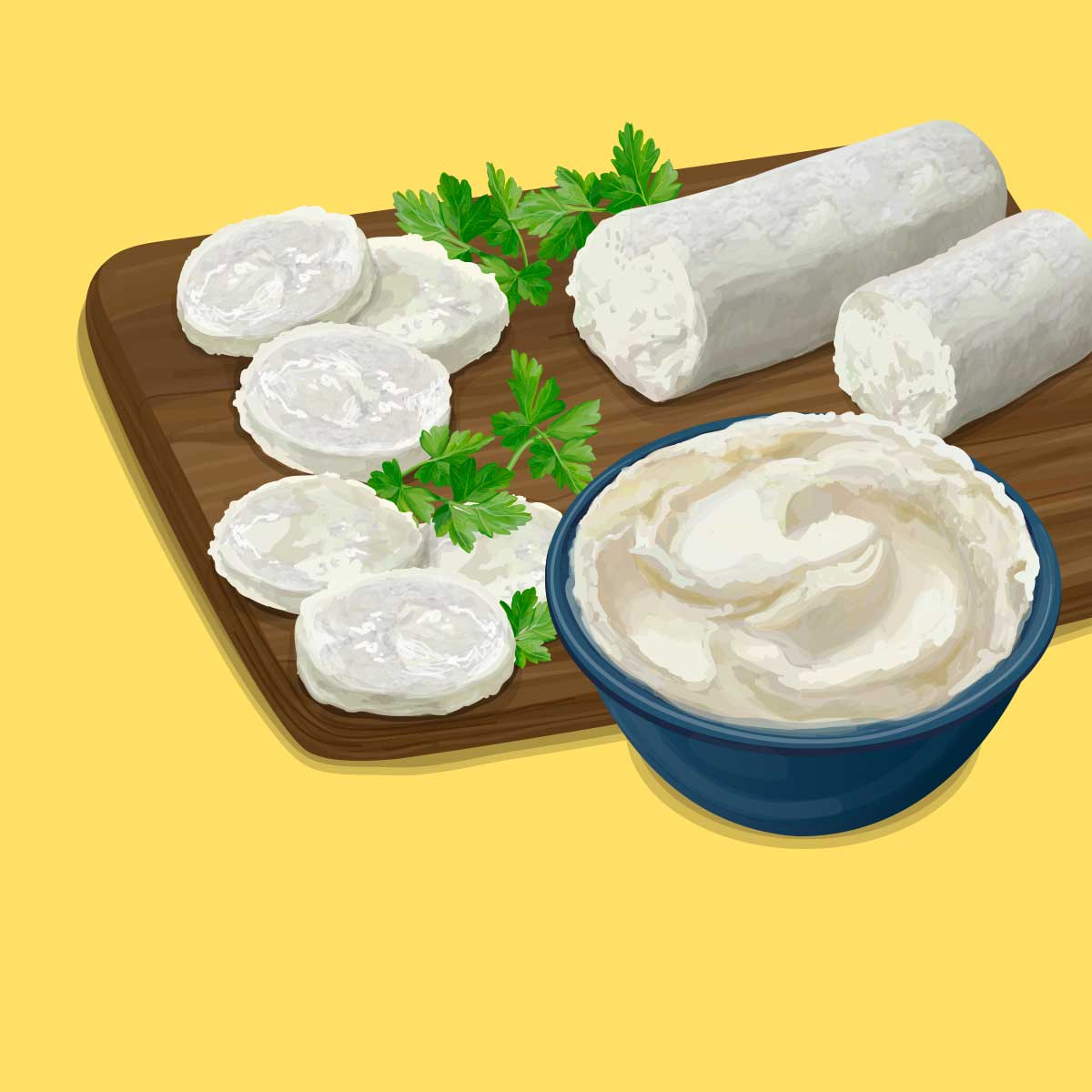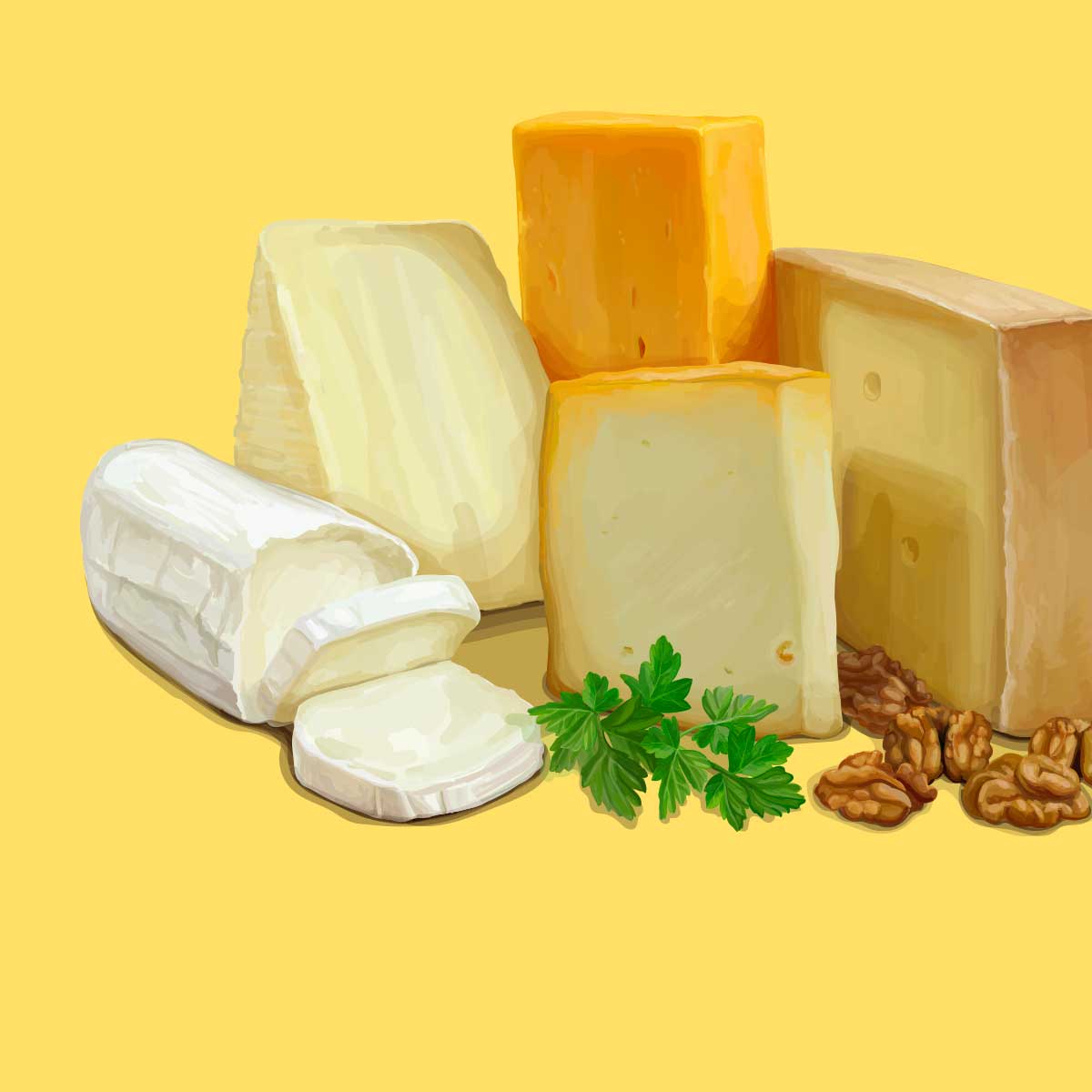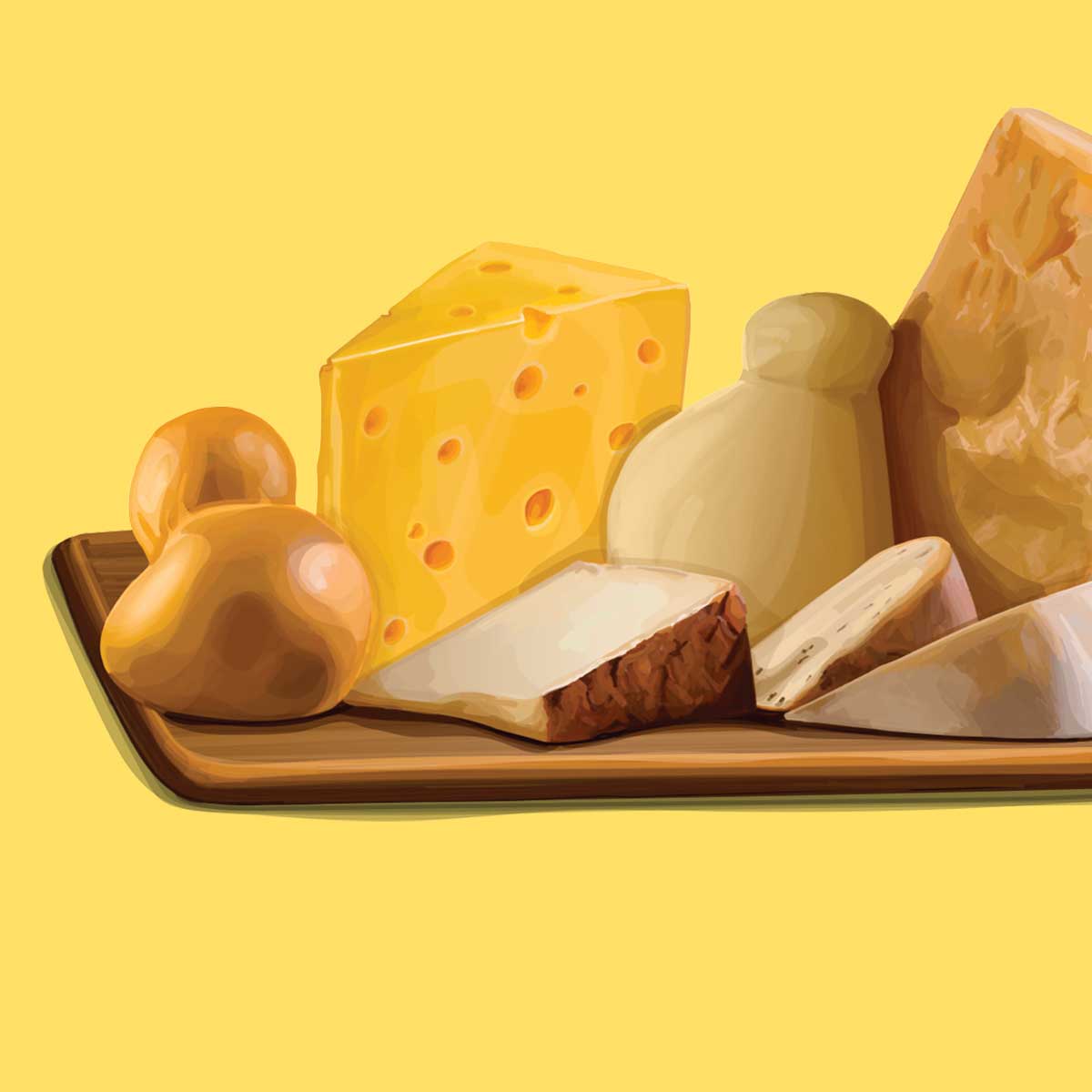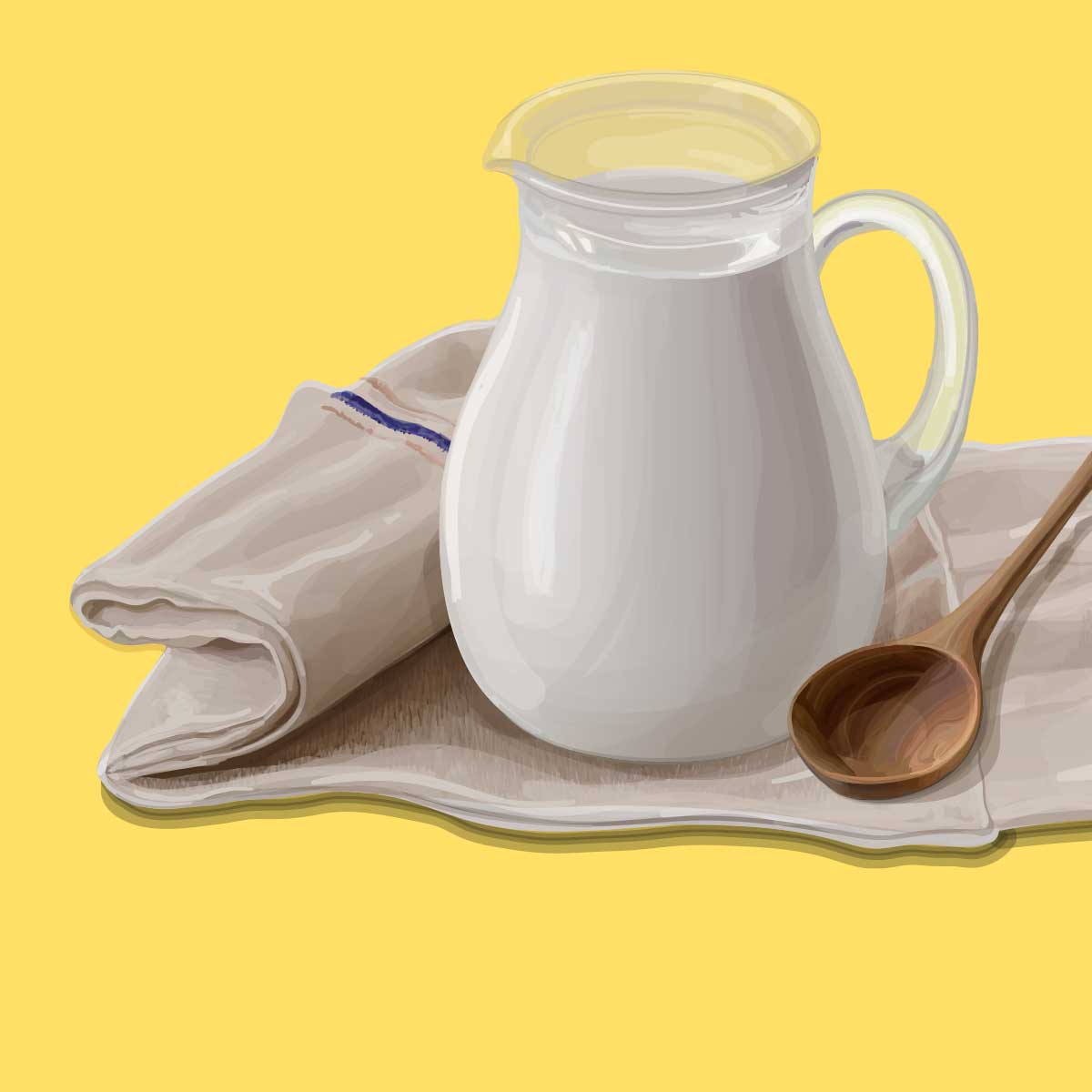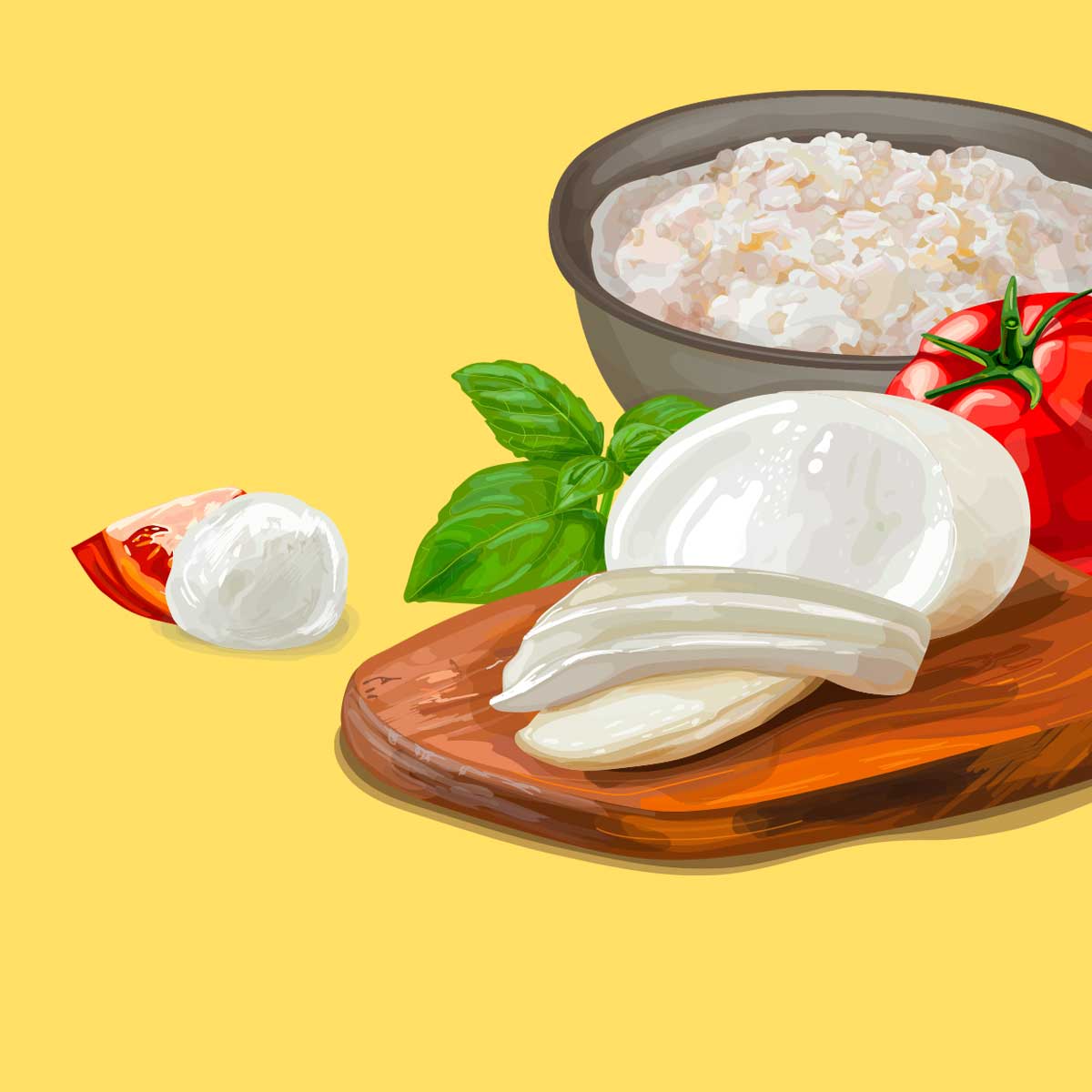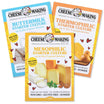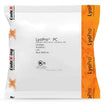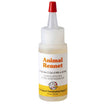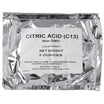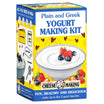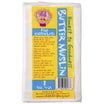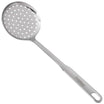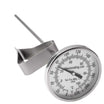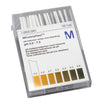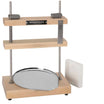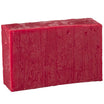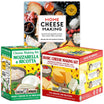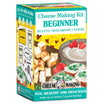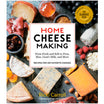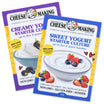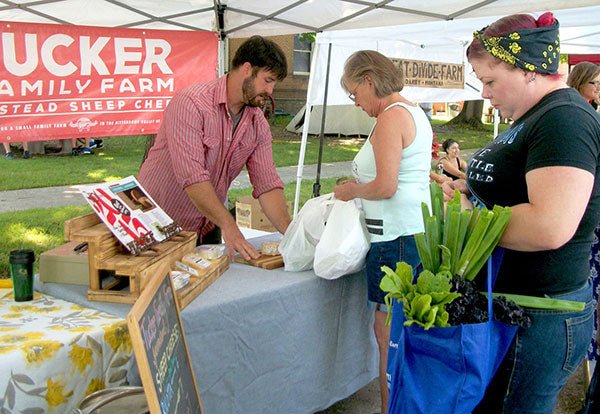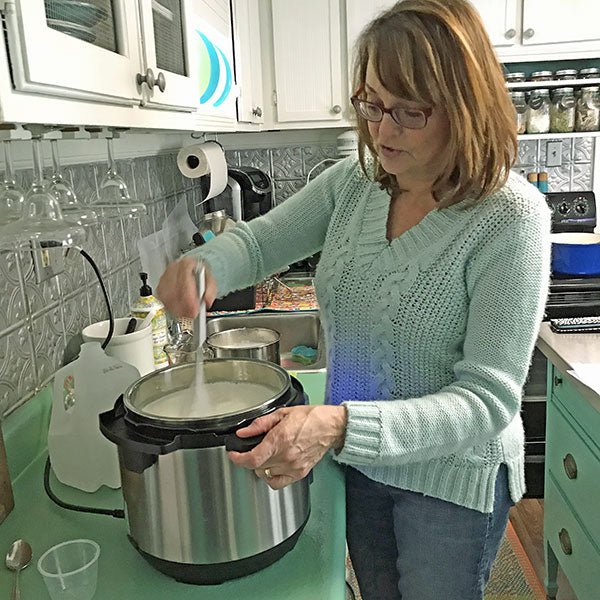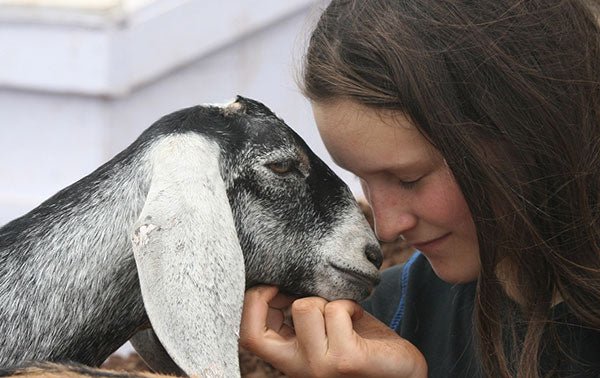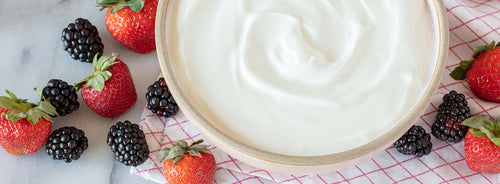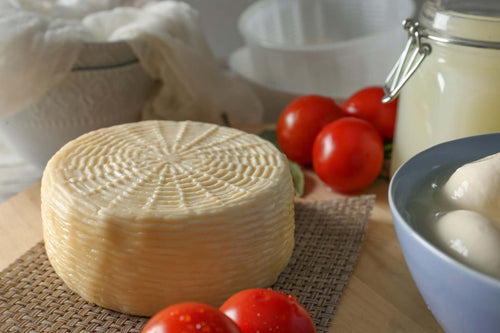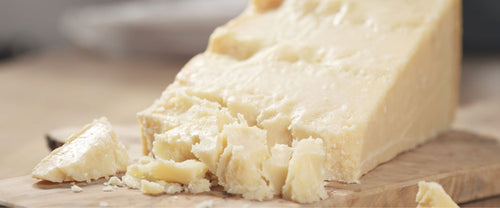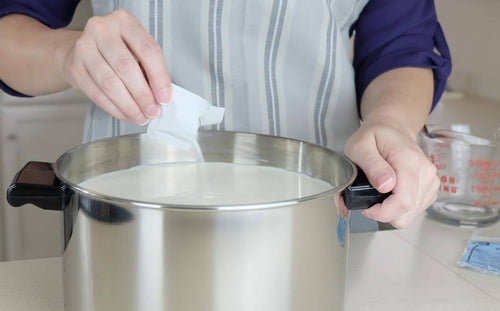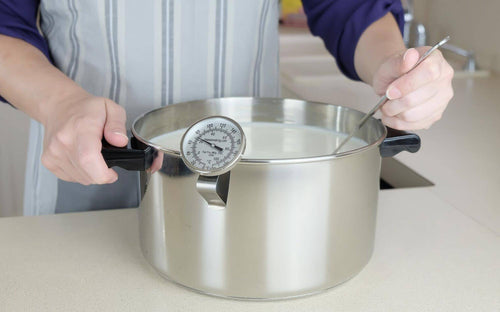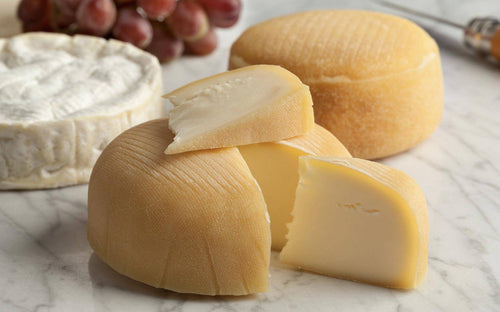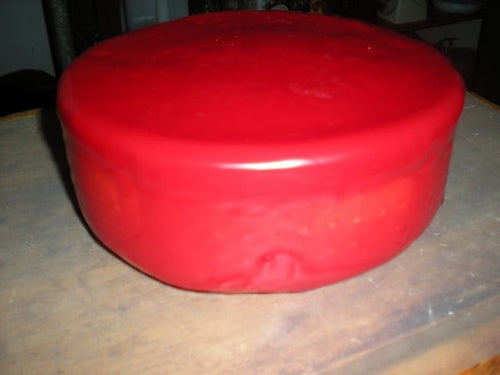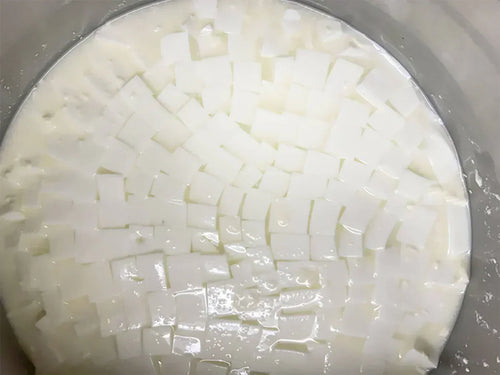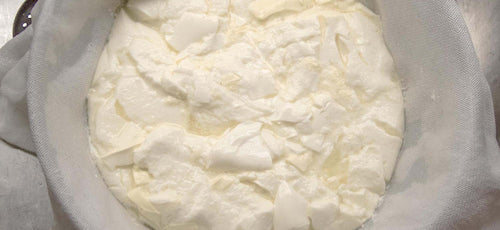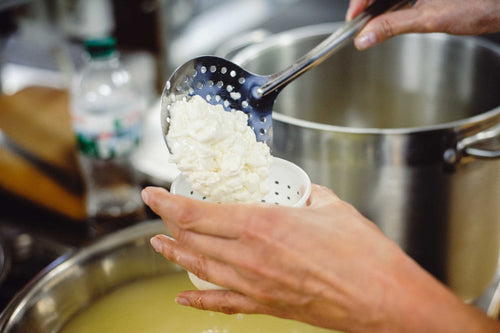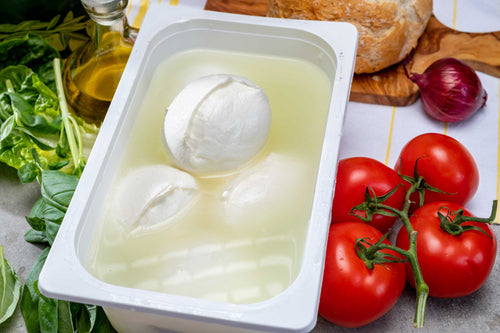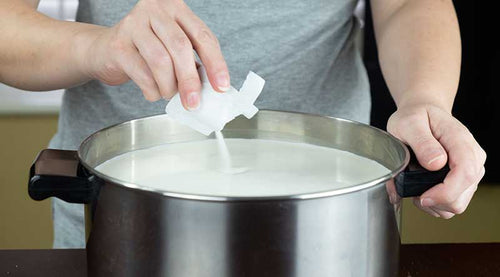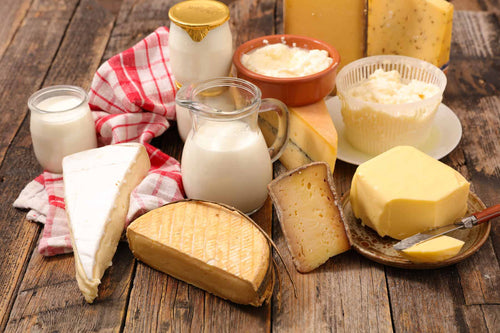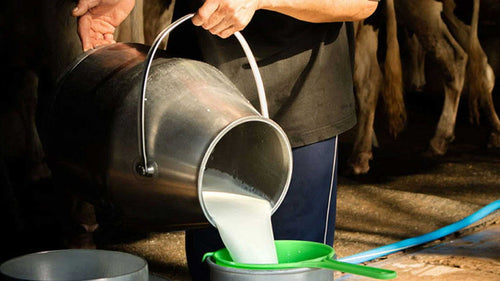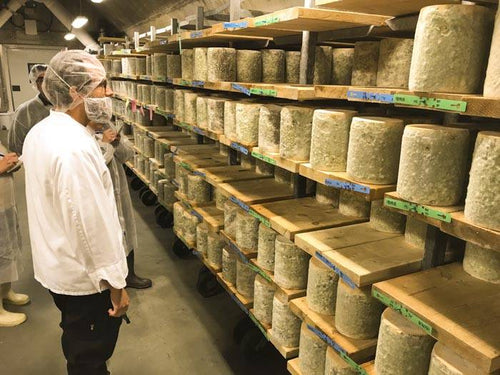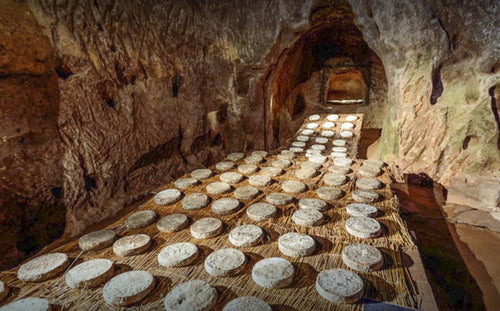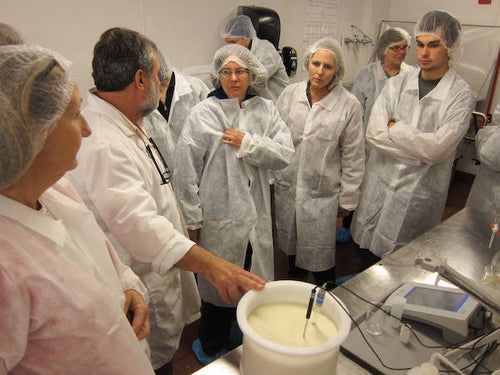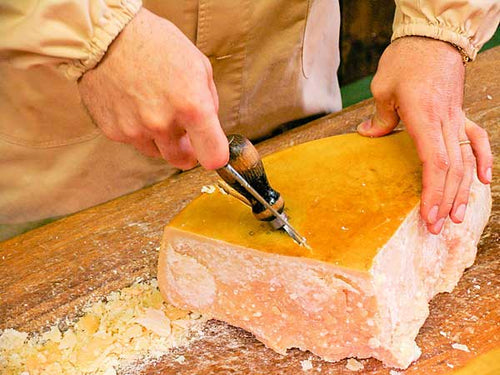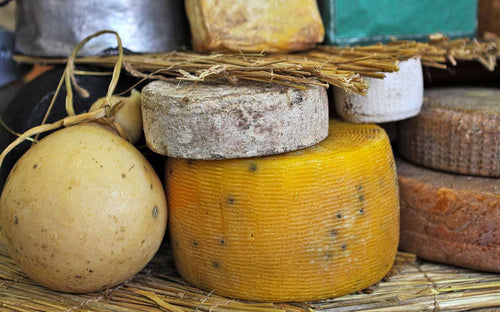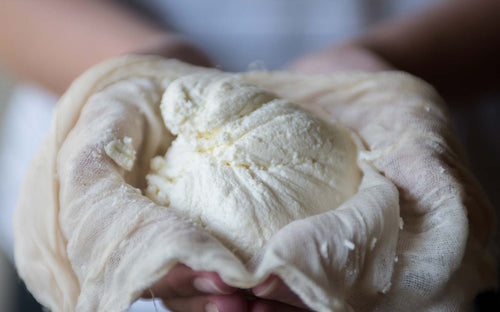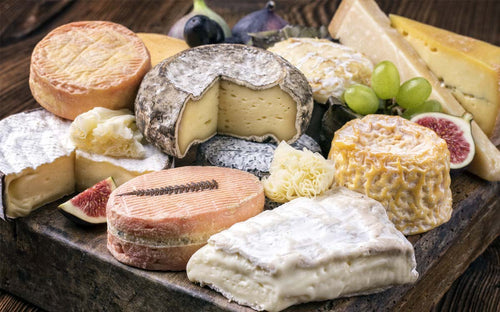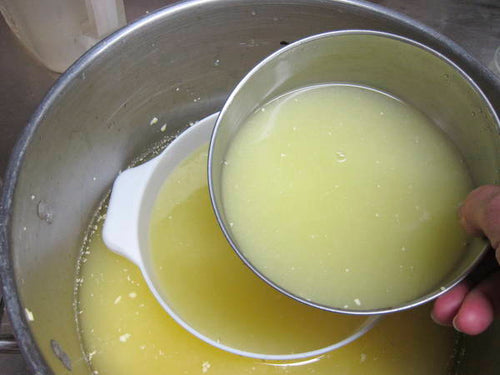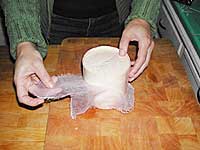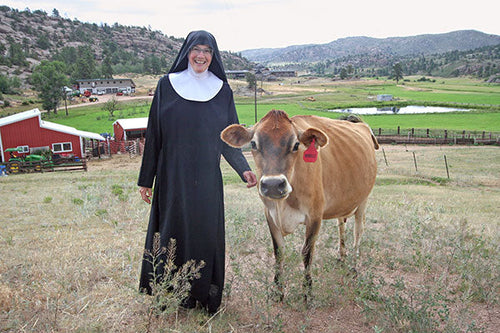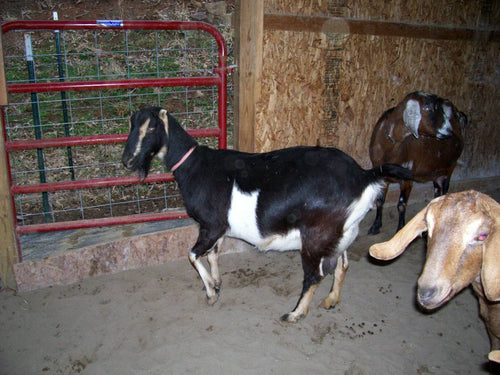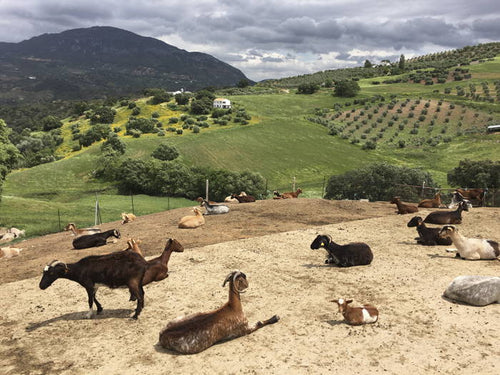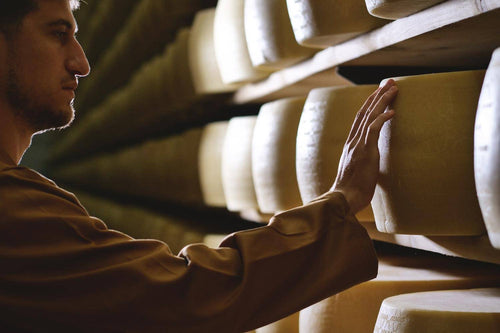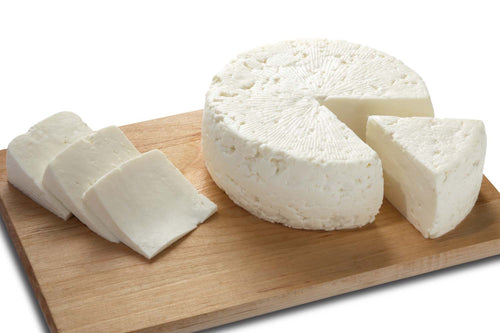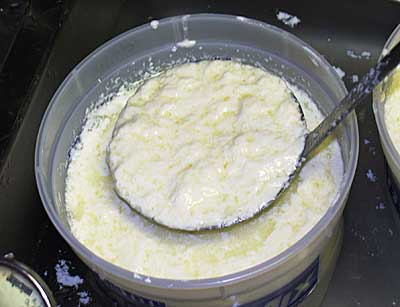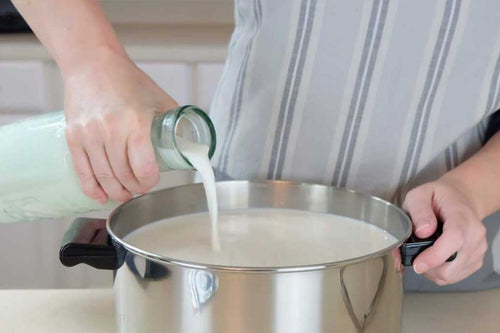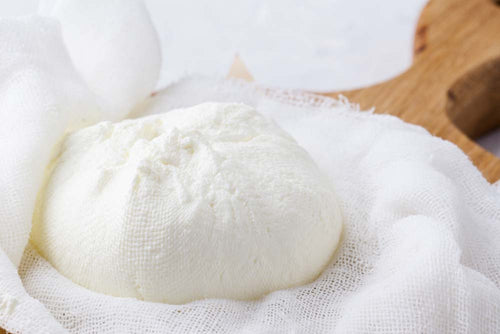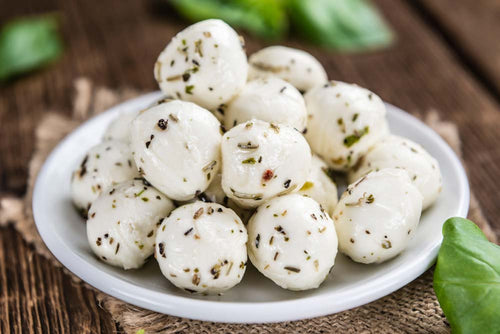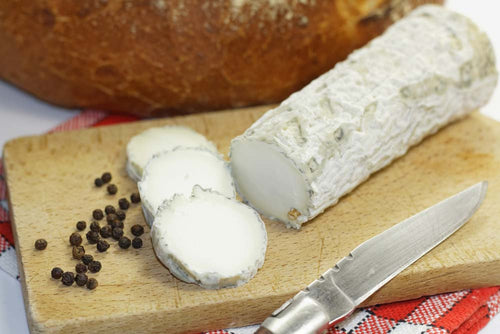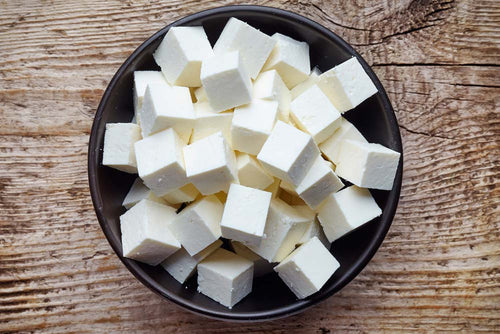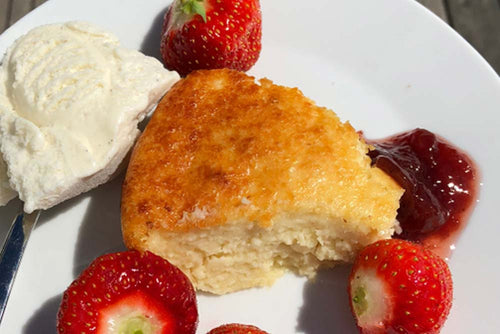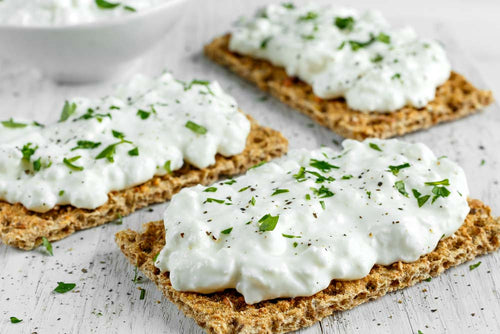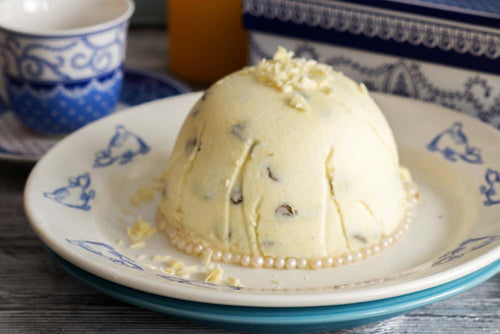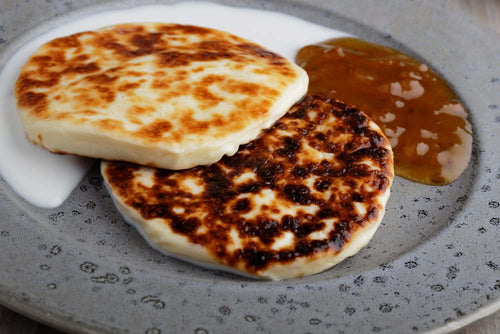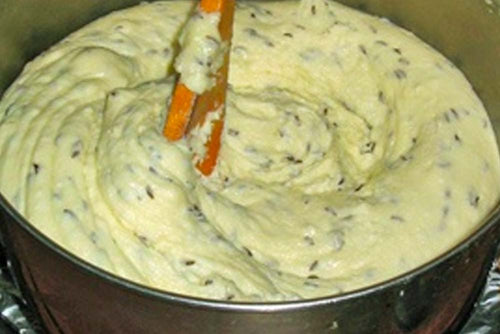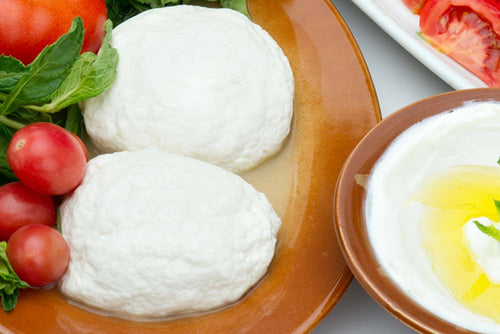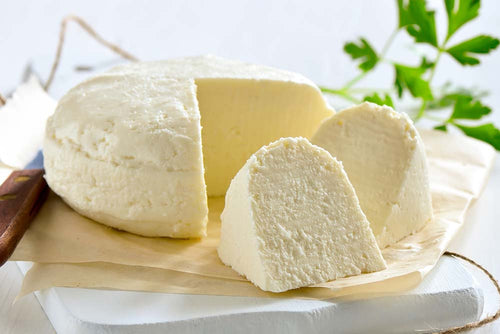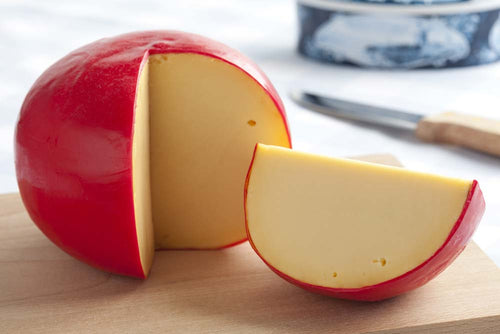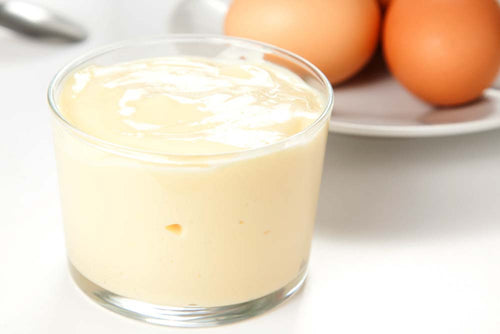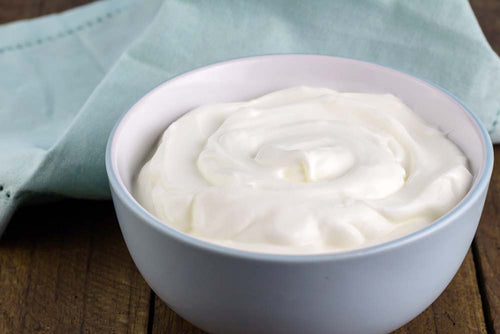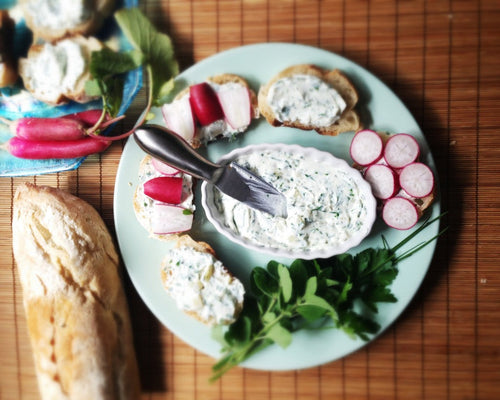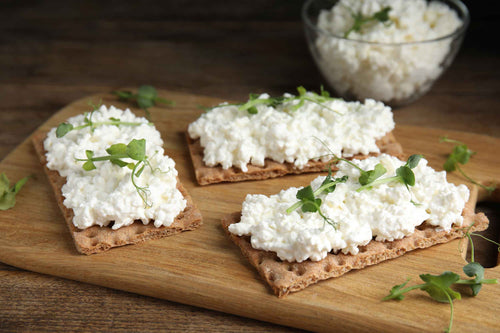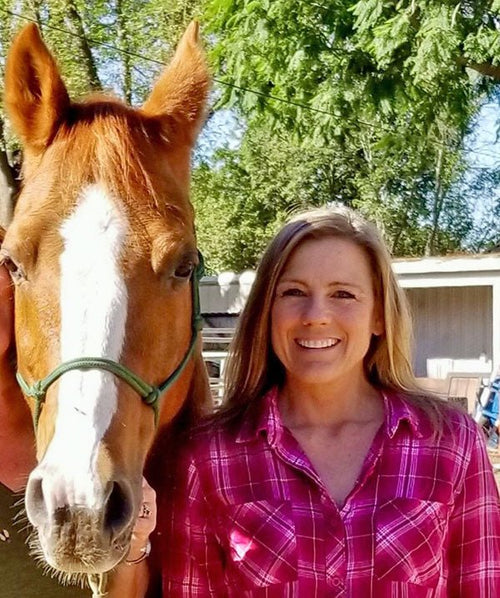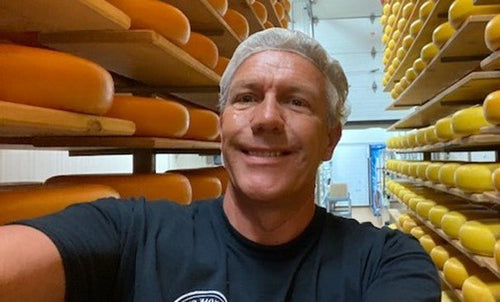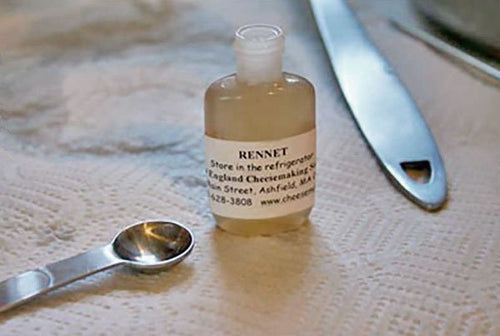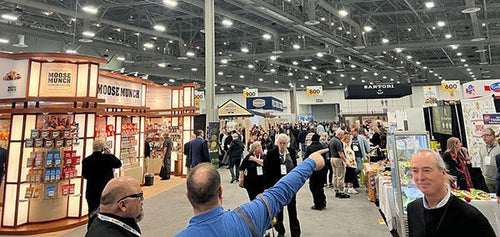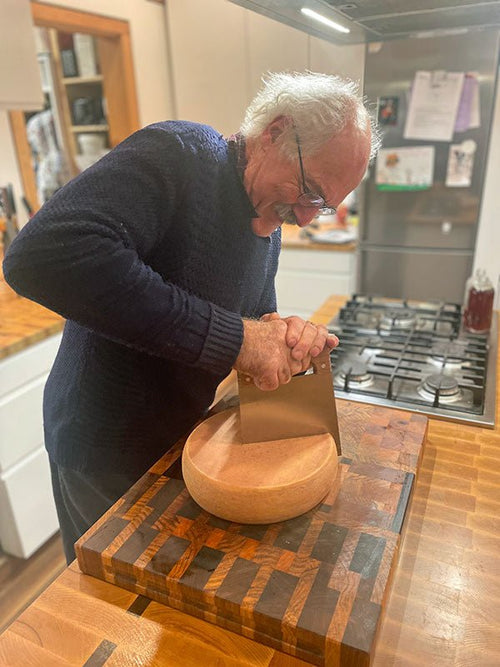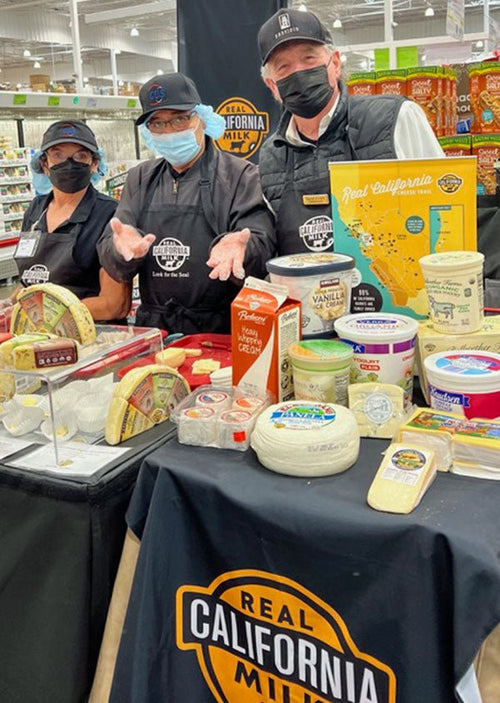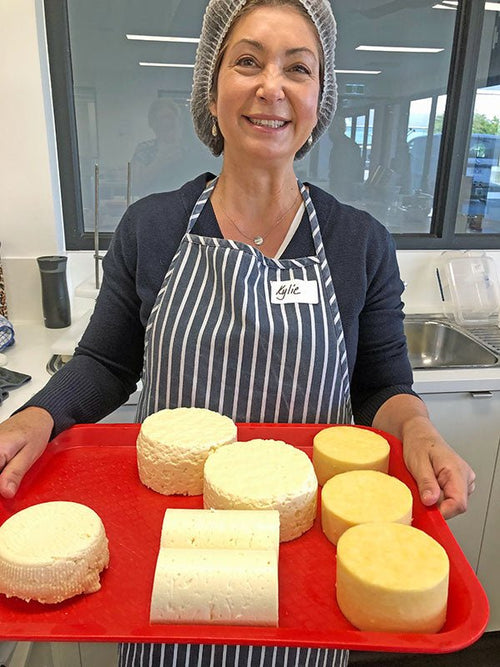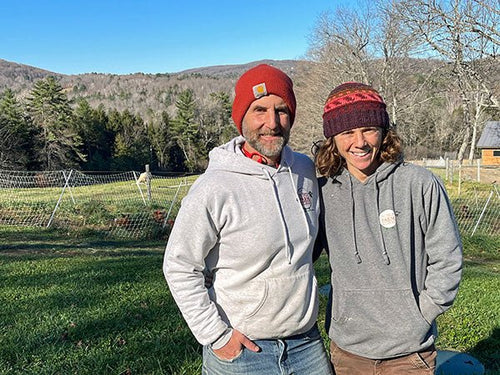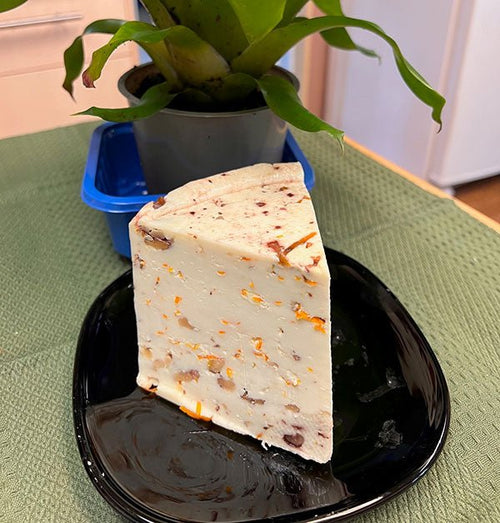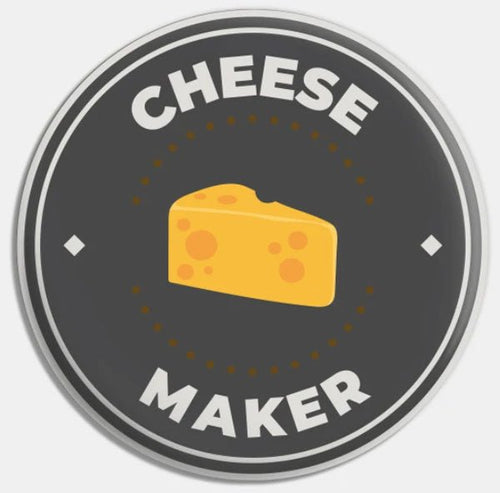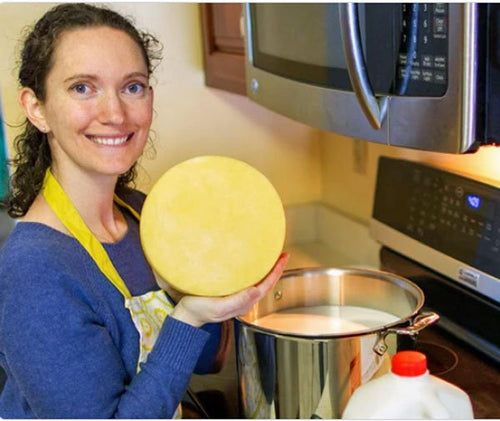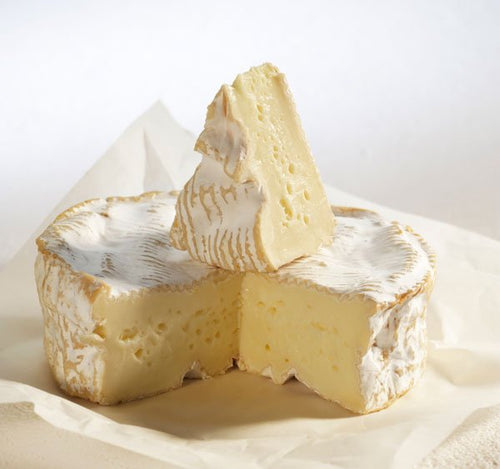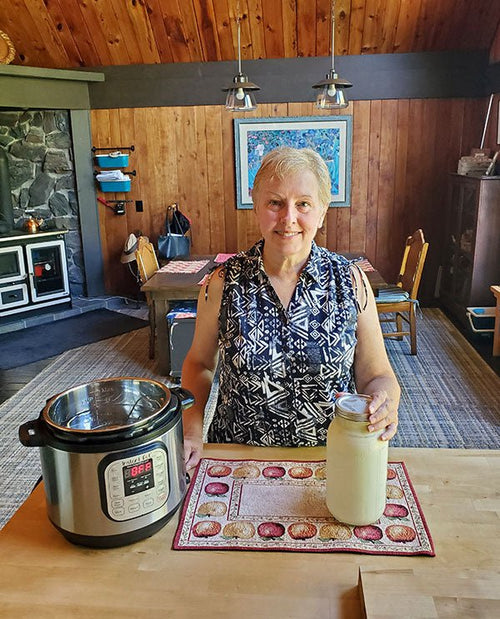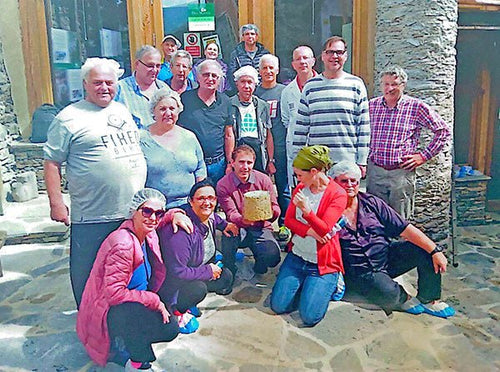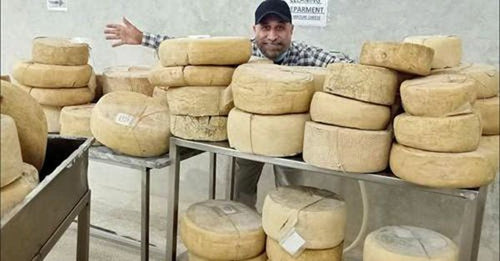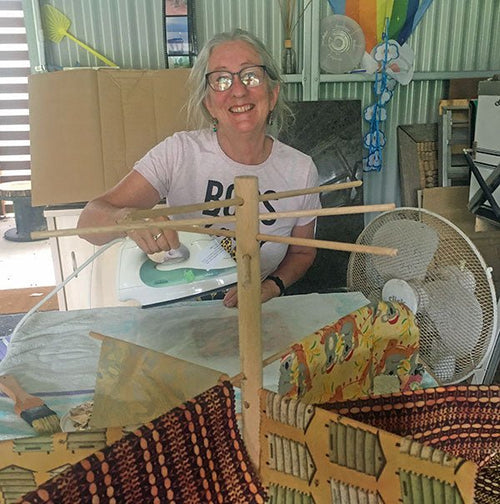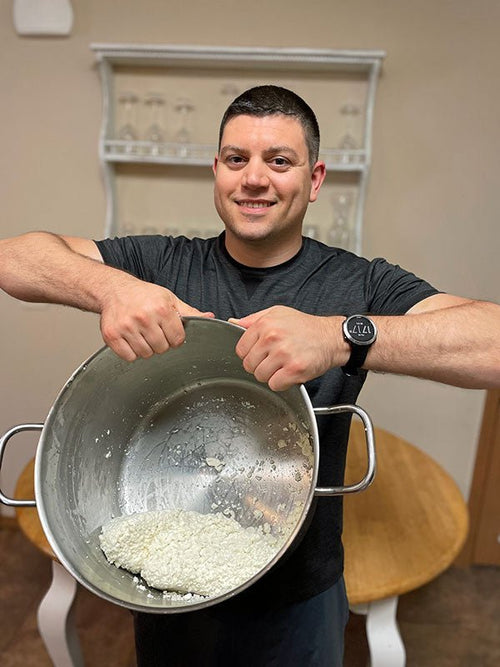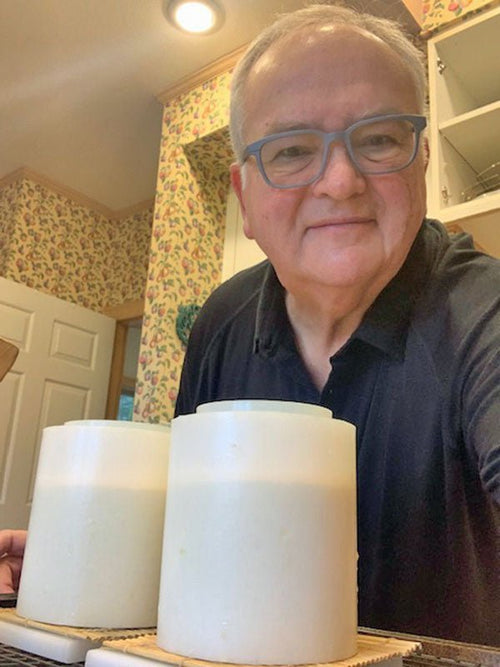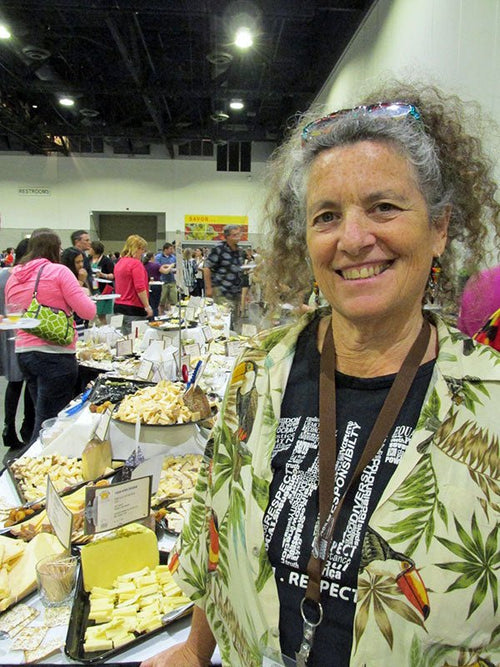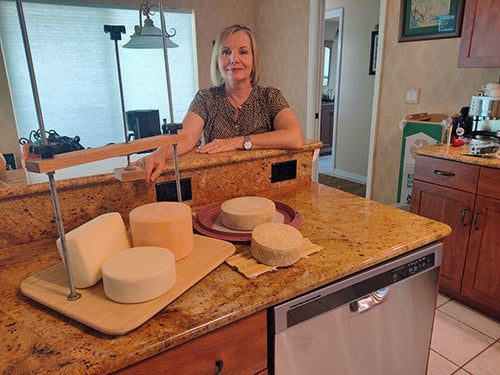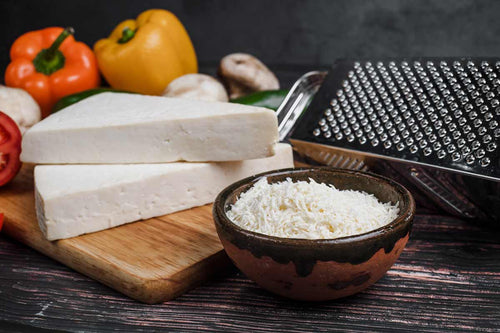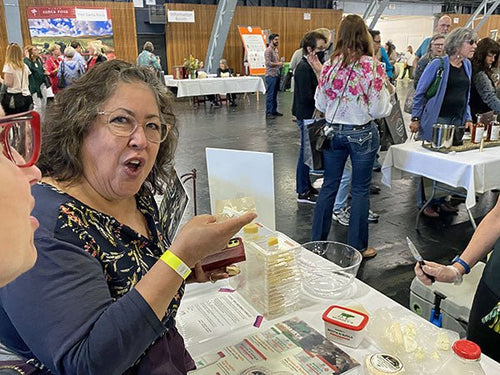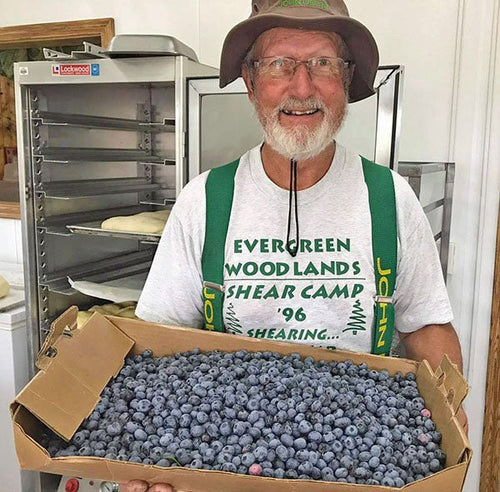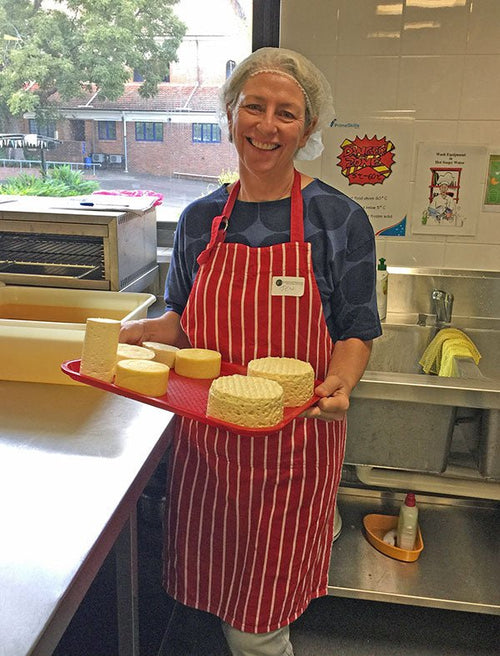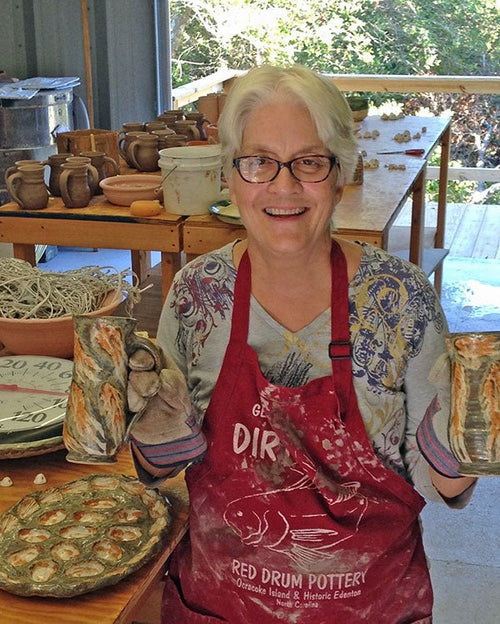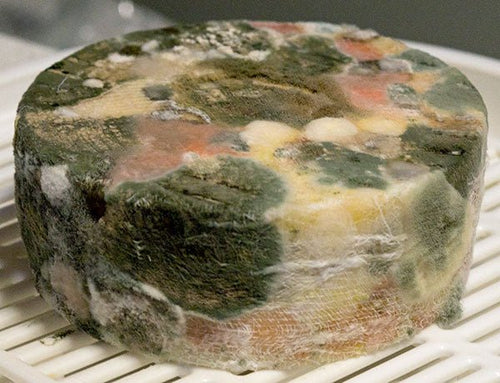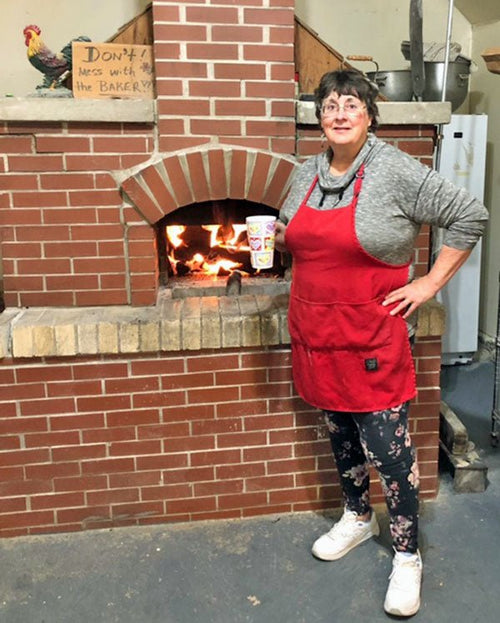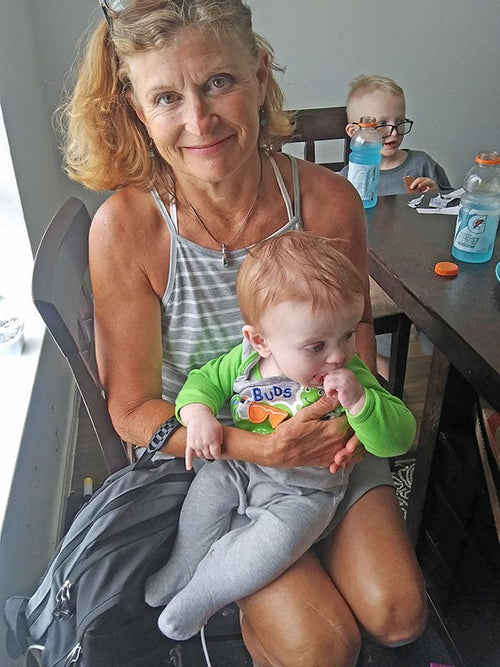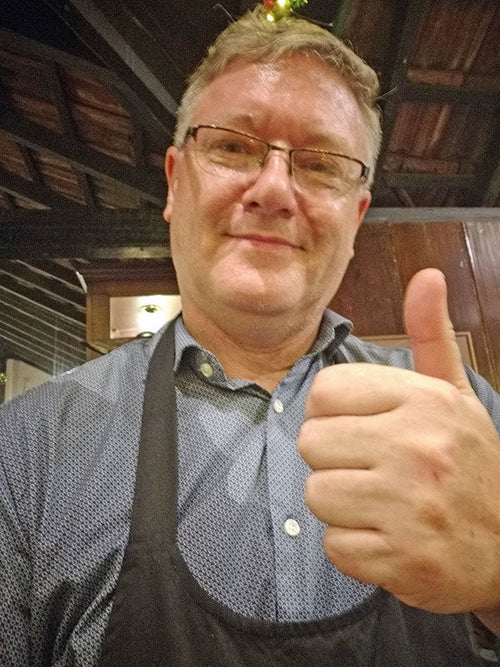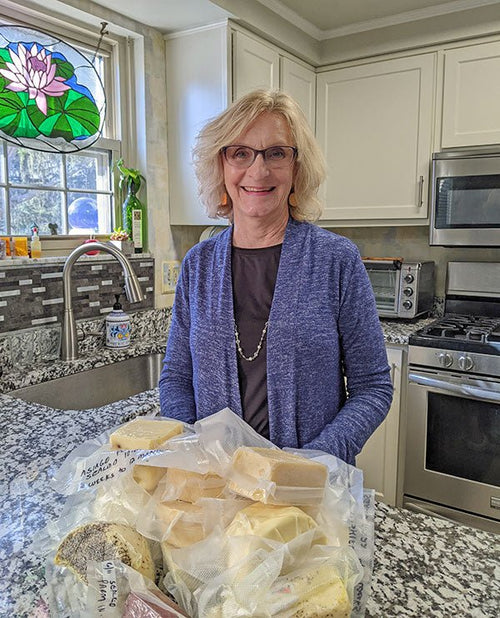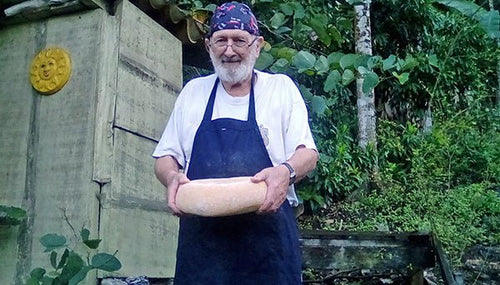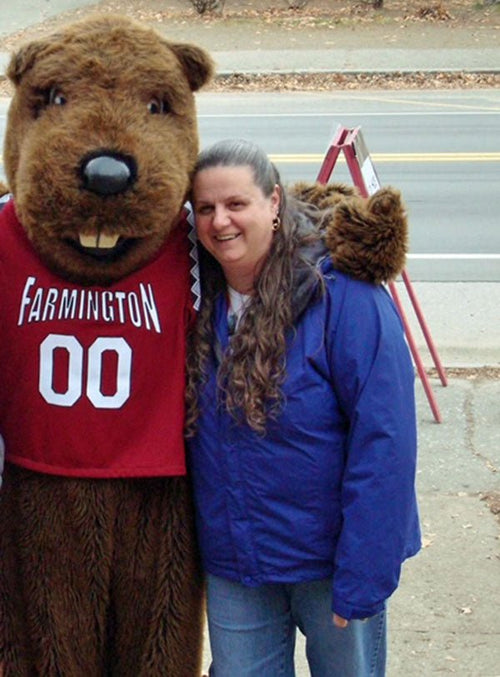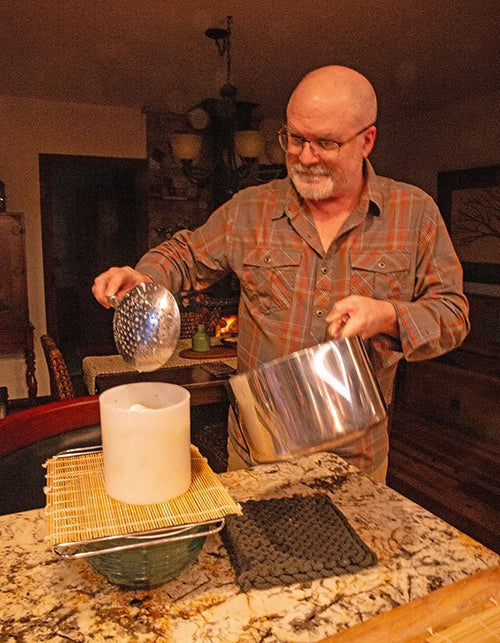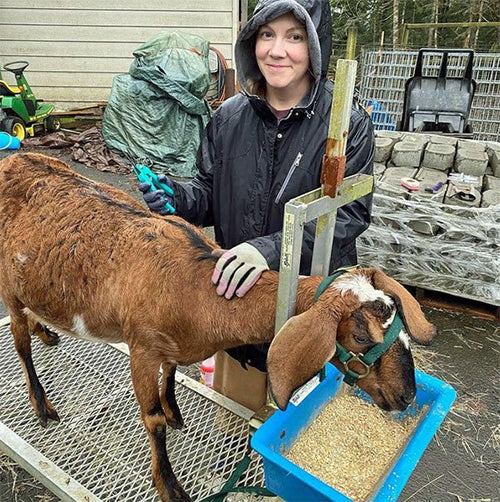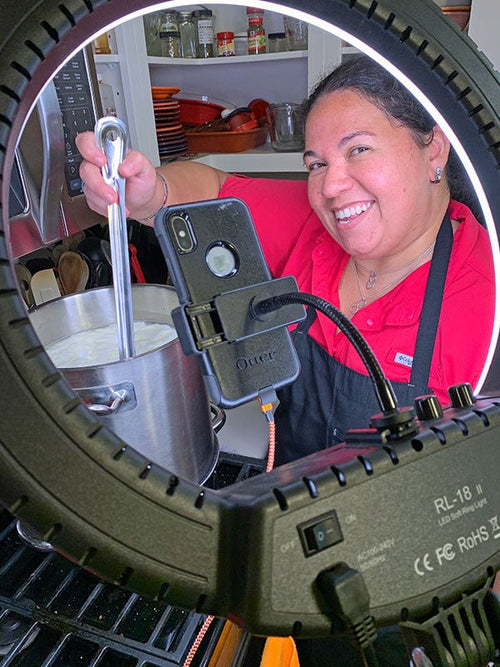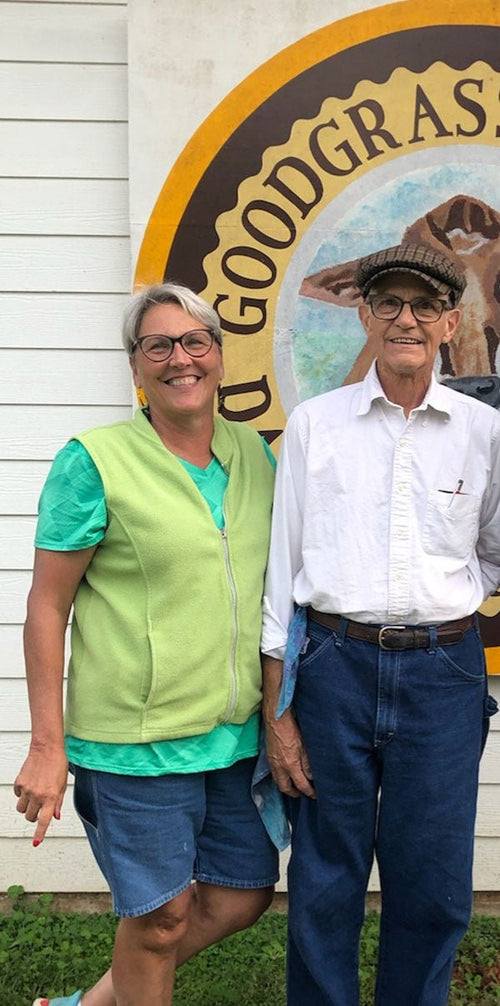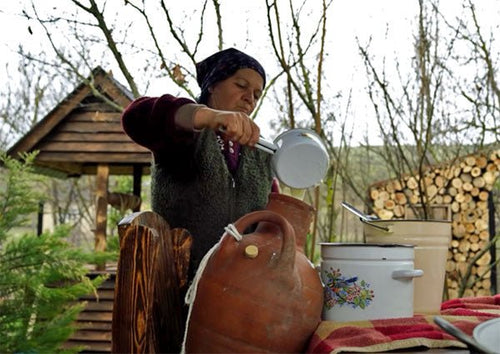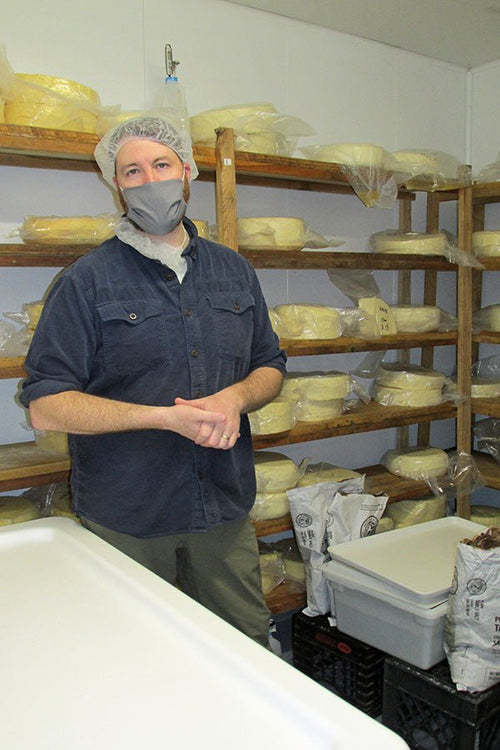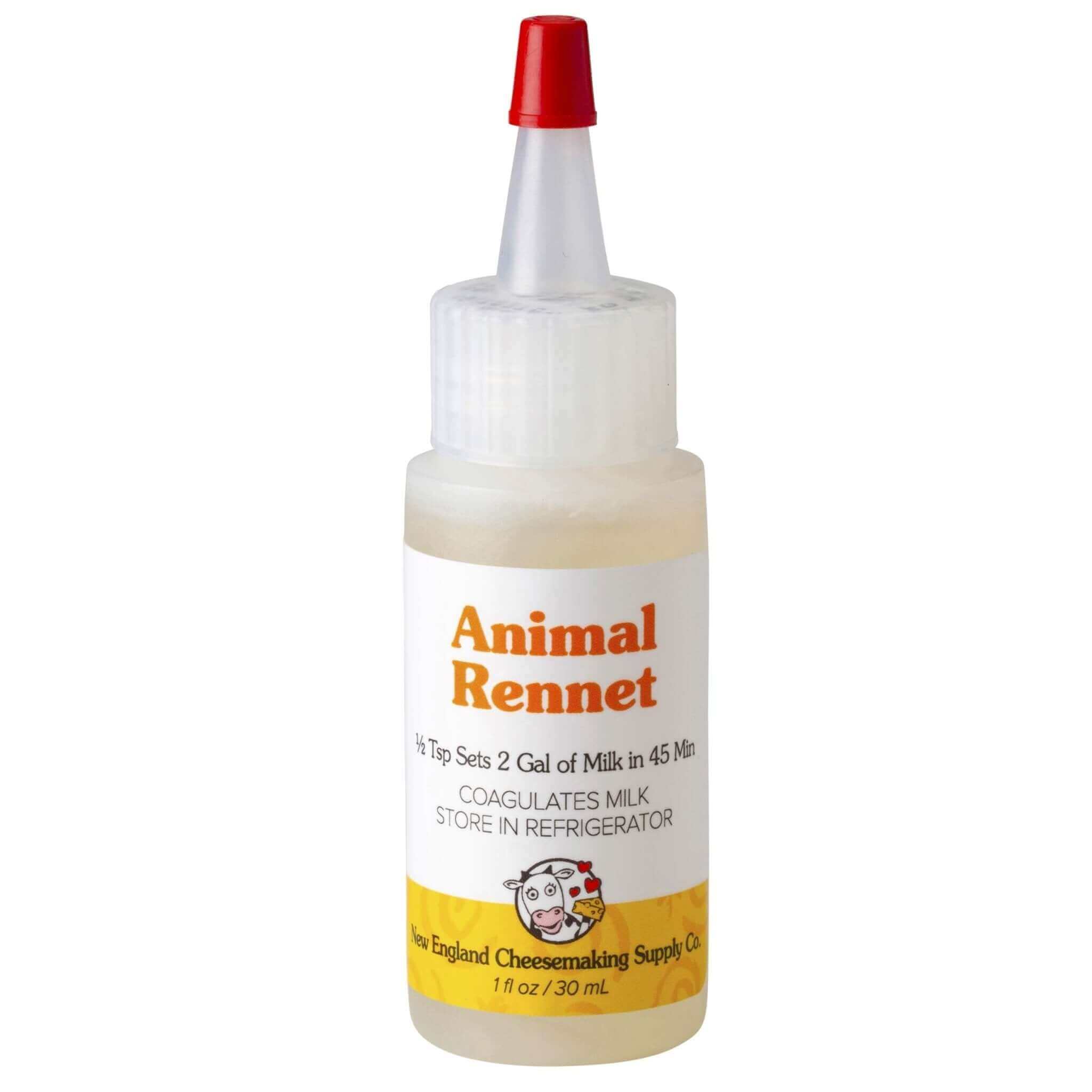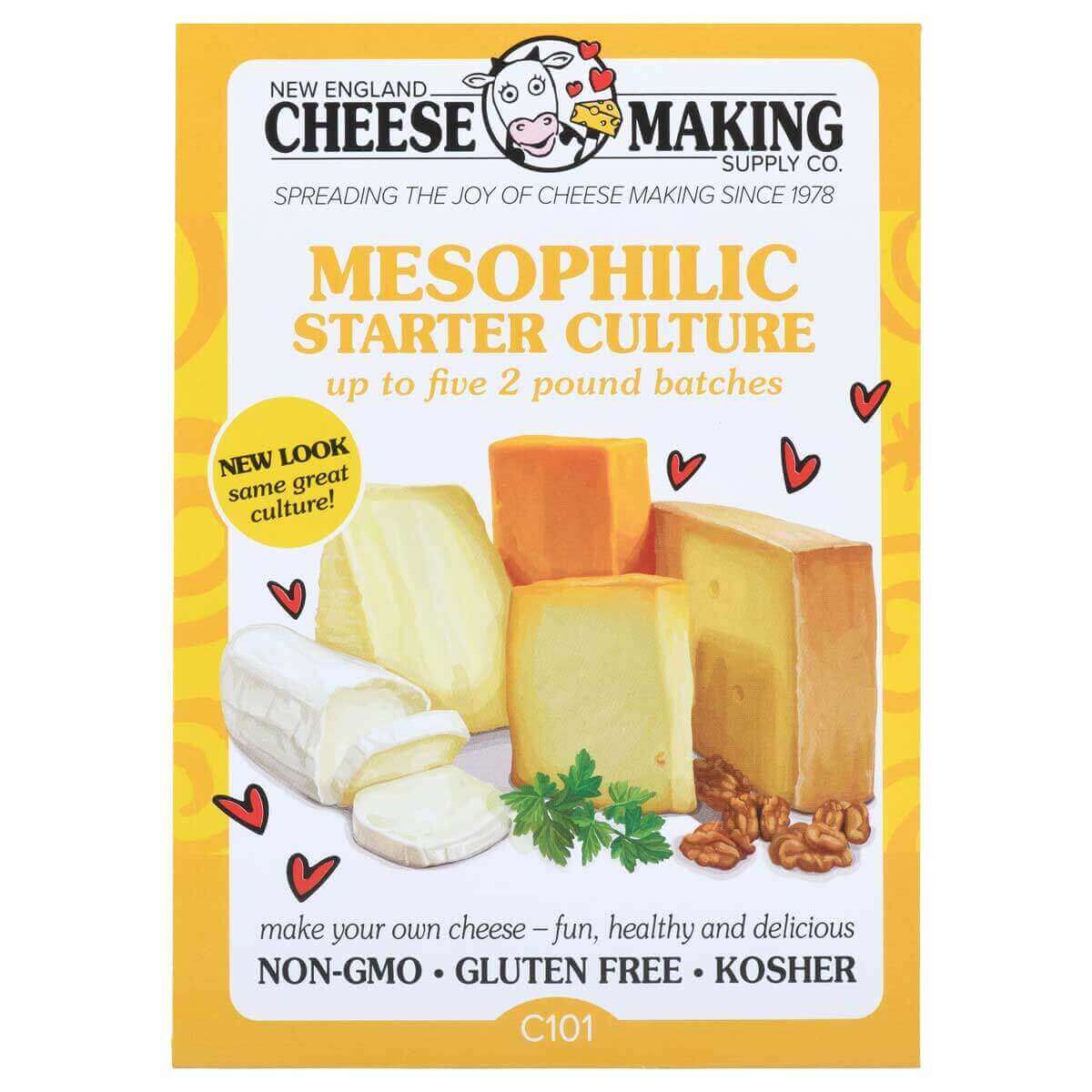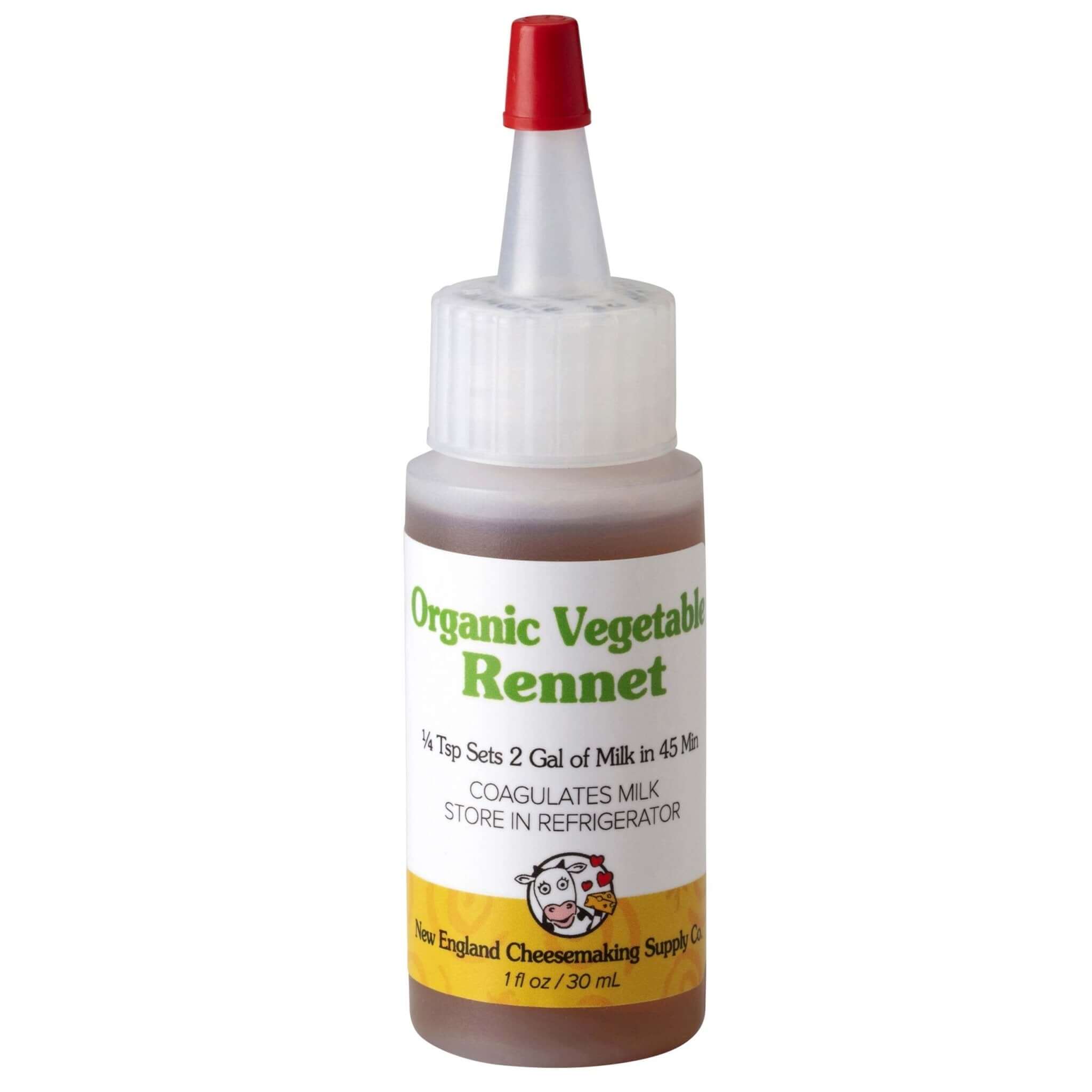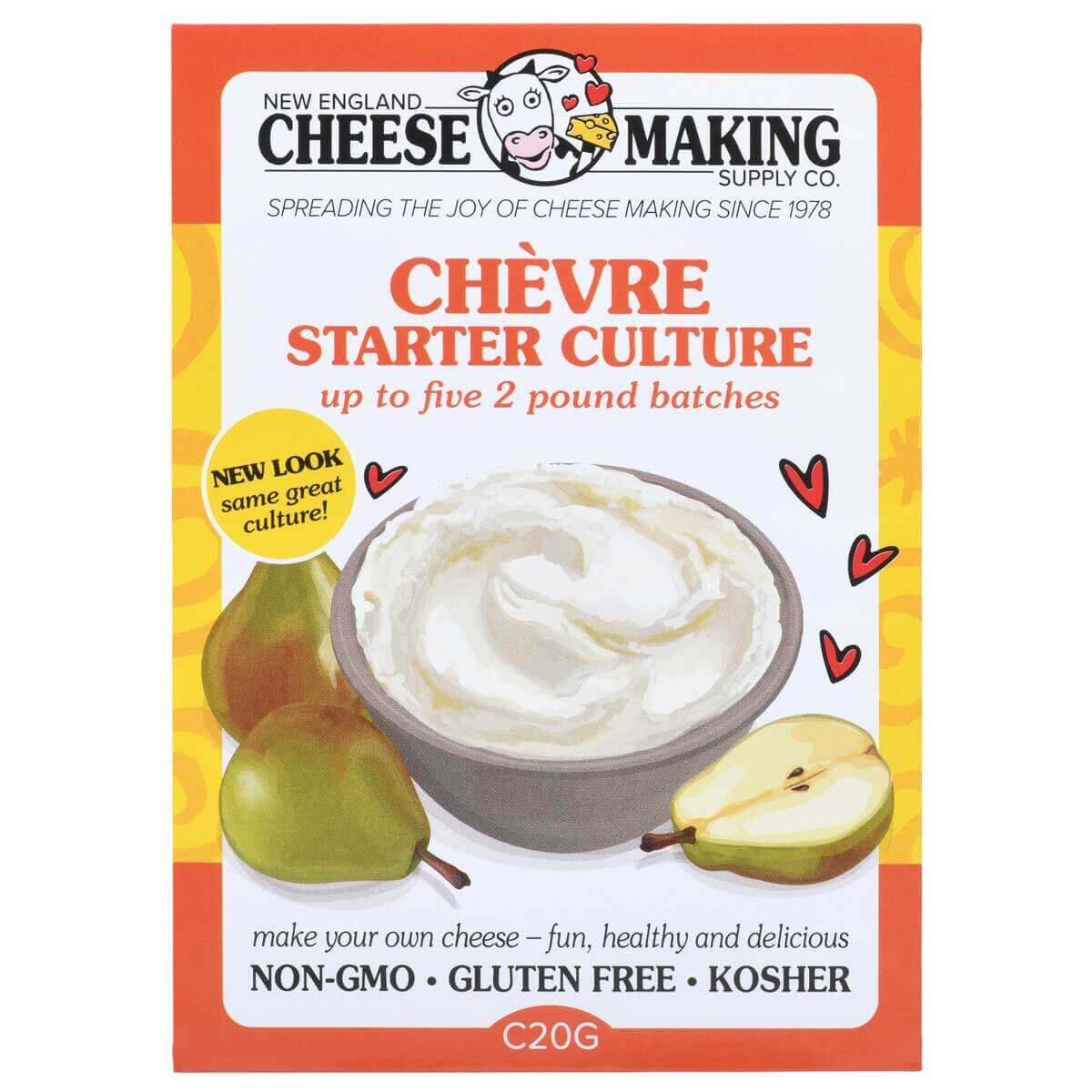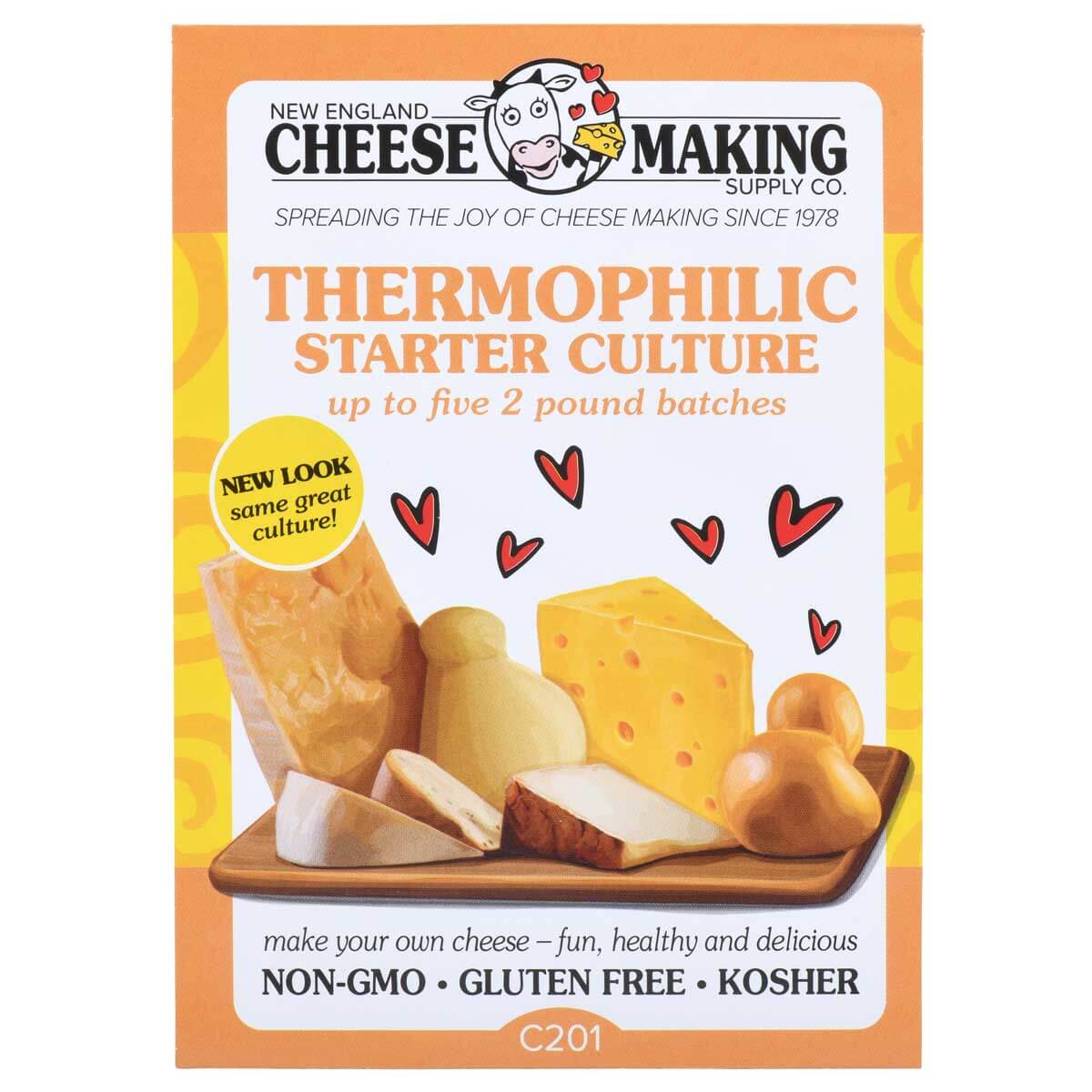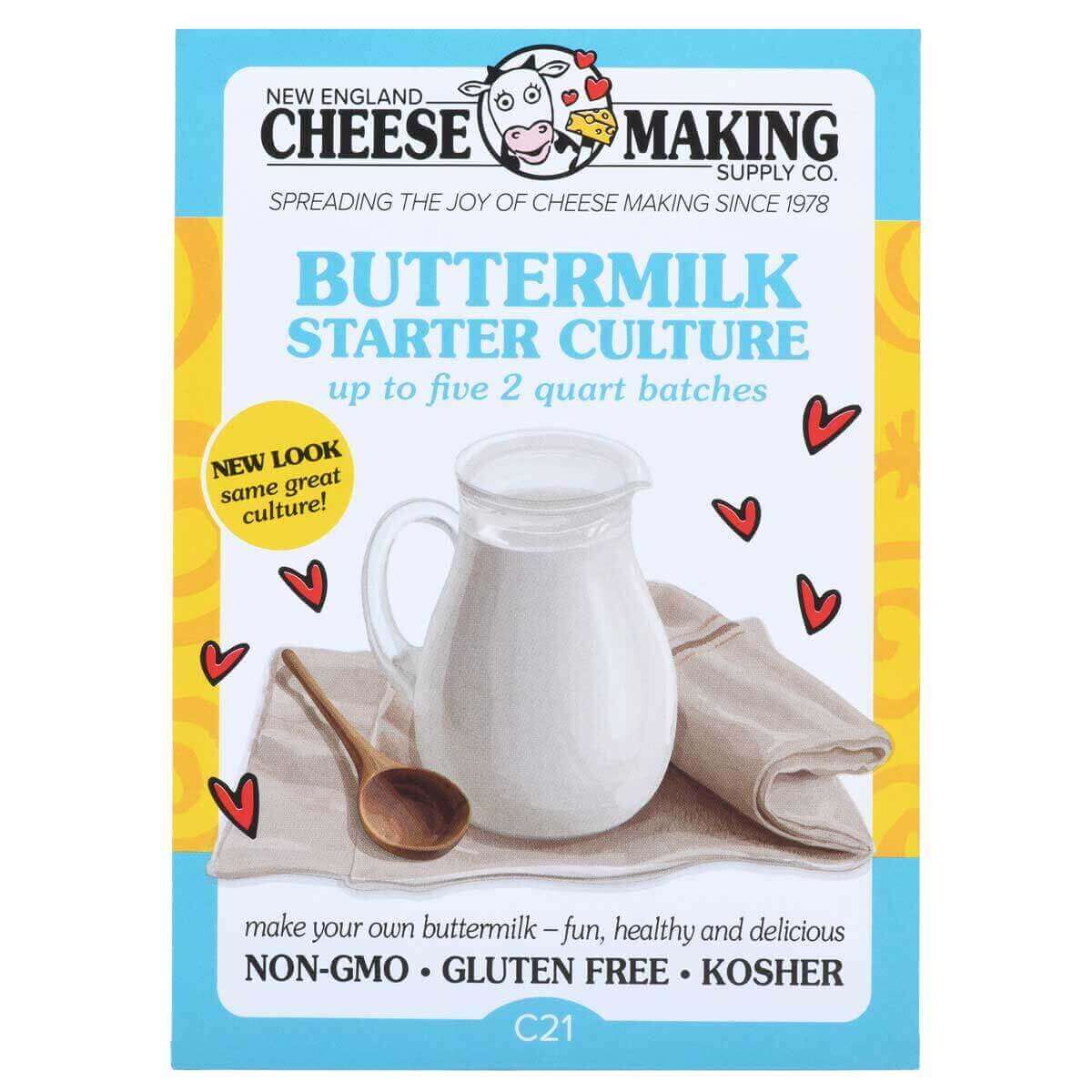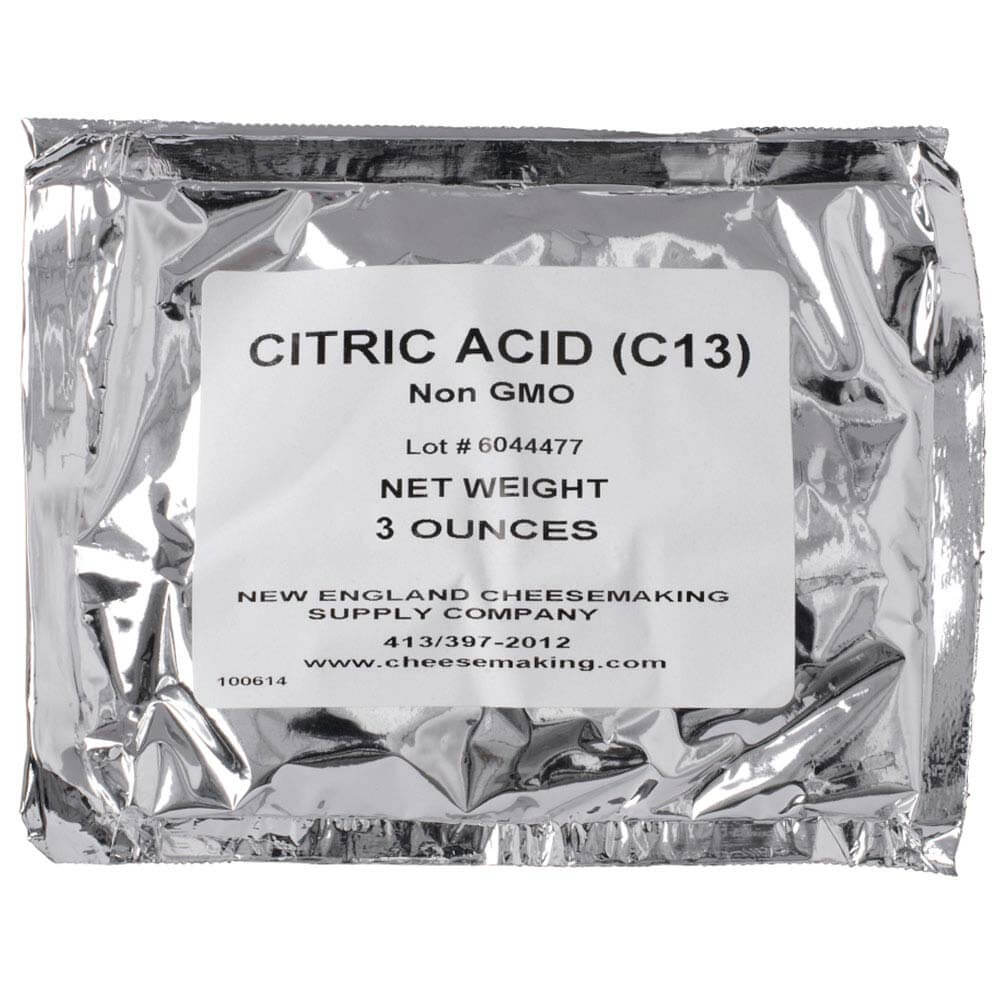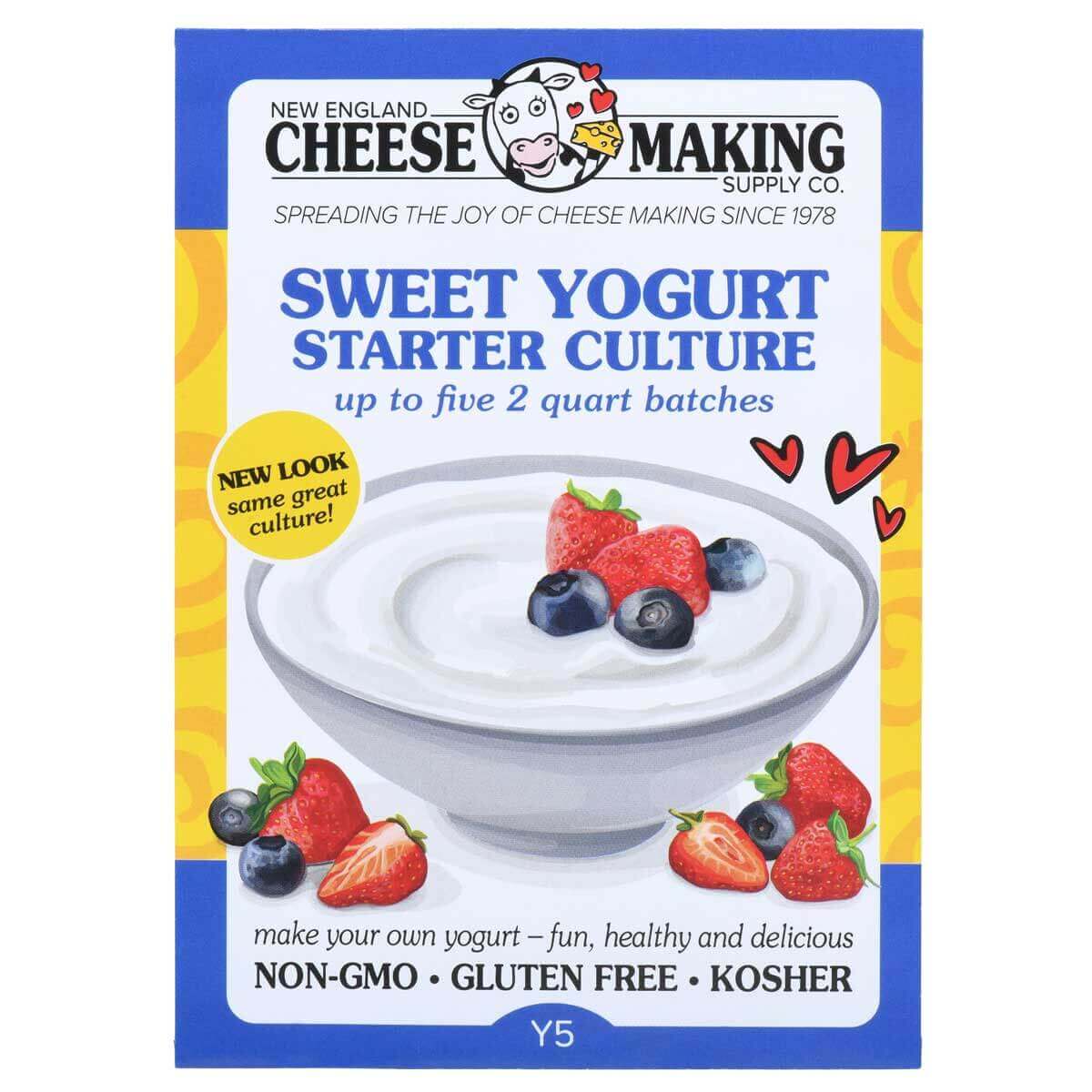
Tucker Family Farm Creamery in Victor, Montana
As consumers, we love to buy cheese at farmer’s markets. Why? It’s fresh. This can be a big issue at grocery stores. If you’ve ever bought a cheese and taken it home, only to realize that it’s whey past it’s prime, you know what we’re talking about.

North Meadow Farm at a market in Vermont
At a farmer’s market, there is no middleman and you can be certain the cheese maker has sent or brought cheese to the market in good condition. In fact, you can usually sample it right there and if you’re lucky, you can talk to the cheese maker him/herself.
Unfortunately, if you’re a home cheese maker, chances are you can’t legally sell your cheese at farmer’s markets in your state. We first explored that subject in 2015 – 3 Reasons to Sell Your Homemade Cheese & 1 Reason Not To. (Hint- the law is the reason not to.) In Massachusetts, anyone can sell fruits, vegetables and other farm products at farmer’s markets, but dairy is considered “hazardous” so it isn’t included.

Samples of Cricket Creek cheeses
However, if you are licensed to sell dairy products, you are generally allowed to sell your products at farmer’s markets in your state. All the laws regulating this are state and city laws, so they vary widely, but, in most places, you can do it.
Some certified cheese makers include farmer’s markets in their business plan and others don’t. Some have told us it’s just too time consuming and labor intensive with all the packing, unpacking and packing again. Others swear by them. The main reasons would be:
You get face to face time with potential customers.
You get immediate feedback when people sample your products.
Here are a few tips from professional cheese makers who use farmer’s markets to promote their businesses:
Allison Dembek at Tucker Family Farm Creamery in Victor, Montana
Our best farmer’s market tip is to bring lots of cheeses to sample! We love to demonstrate the ranges of cheese and flavors people can experience with sheep milk. In Montana, sheep milk cheeses are relatively new and a lot of people can be scared to try. It’s awesome to see the eyes go wide and a smile cross their face after a visitor tries their first sheep milk cheese. And for regular customers, we always like them to have a snack while they browse over what to buy this week.
Beth Lewand at Cricket Creek Farm in Williamsburg, Massachusetts
We’ve found it to be very worthwhile to have a distinctive look to our market tables, with unusual signage and props. It helps get you noticed at the markets, and helps customers remember who you are and how you’re unique.

Imran Saleh in action
Imran Saleh at Farmer’s Cheese Making in Lahore, Pakistan
To me, farmer’s markets (FM) are wonderful platforms, especially for selling and introducing cheese. Here, you are face to face with end users and get realistic feedback right away due to offering free tastes. Since its a limited market, you get the right audience and their feedback helps you improve if you are a passionate cheese maker.
I not only used to sell small portions, but we were making goody bags including various cheeses in small portions so that people can taste as many at home and decide what is according to their taste pallets.
I always tried to make my stall as attractive as I could. Nice stand, clothing, display and promotions were our priorities. I gained many restaurants as customers from such markets.
Lysa Cross at North Meadow Farm in Manchester, Vermont
Last year was my first year of markets. I did the Bennington market and Manchester market. During the winter I did the Bennington and Rutland markets. My only advice is, be prepared for samplers!

Margie Parsons at a farmer’s market in Northampton, MA
Margie Parsons at Mayval Farm in Westhampton, Massachusetts
Sample, sample, sample! I find with the Skyr, that often people are hesitant to try or ask about it because it is something they have not heard of. Once they try it, nearly all think its great (WOW is the most common word we hear!) and often we pick up a new customer. The same with the Camem-mere – it sells itself once it is tasted.
After 3 years of markets and watching other vendors, I think the most important thing (if you are not selling veggies which most people are there to buy) is to be engaged, make eye contact, smile and not sit around on your cell phone! It is hard work for 5-6 hours!

One of the many farmer’s markets where Beltane Farm sells their cheese
Paul Trubey at Beltane Farm in Lebanon, Connecticut
The biggest tip I could give is to get people to sample your cheese- and talk about it’s flavor and qualities as they taste. Giving some information about how its made or the qualities of the milk is also good if someone is interested. Customers love to talk with the people who make the cheese or are involved with the milk production. It brings the whole experience right home.
Paula at Holy Goat Cheese in Victoria, Australia
We have been attending farmers markets since we started making cheese in the early 2000. They are a very important part of our business as they allow us to connect directly with our customers as well as giving us feedback on our product and to help us keep developing our cheeses.
Our main focus at the markets is to keep everything as simple and authentic as possible. It is all about tasting the cheeses and having people from the farm engage with our customers. We have a simple image of a new born kid staring directly at the customers as a backdrop for the marque.
The cheeses are beautifully presented in our fridge display and we offer tastings for all the cheeses sold on the day. People are very curious to know how the cheese is made and where the farm is. Our staff are knowledgeable, friendly and keen to talk about the farm.
We also have a range of cards with images of our goats for sale as well as a postcard showing our full line of cheeses.

Little White Goat Dairy stall at farmer’s market in Amherst, MA
Rachel Scherer at Little White Goat Dairy in Orange, Massachusetts
The trickiest thing about selling goat cheese is getting potential customers over the “I don’t like goat cheese” hurdle. We explain that our cheese is “grass on Monday,” and so fresh that they might find it very different from others they have tried. And give them a napkin and permission in a lighthearted way, to spit it out if they don’t like it!
Summary
Tips:
- Give out samples and bring enough for a LOT of samplers.
- Give people information about how the cheese is made (in writing as well as conversation).
- Talk to the customers. (It helps if you send the same staff week after week at a market, to build familiarity.)
- Make your stall as nice as you can because it reflects on you and your products.
- Make your stall unique because it helps customers remember who you are.
- Do not sit around talking on your cell phone.
Suggestions:
- Make up “goody bags” with small portions of various cheeses so customers can take them home and decide what they like.
- If a customer is squeamish about trying something new, give them a napkin and permission to spit it out.
- Sell postcards showing your full line of cheeses.
More Info
A Guide to Selling at Farmers’ Markets
Selling Produce at Local Farmers’ Markets



